Hello and welcome to Work Week, the podcast where we discuss one big question about the rapidly evolving workplace, explore relevant research about the topic, and explain what it all means for you.
I’m Dr. Kelly Monahan, Managing Director at The Upwork Research Institute. What you’re hearing is a digital proxy of my voice created by our team with the help of AI.
This week, we’re answering a question organizations need to consider as they continue to integrate AI across business functions: How does AI help workers maximize potential?
Behind this question lies a deeper shift that The Upwork Research Institute has been tracking: the emerging partnerships between workers and AI. It’s not about humans versus machines. It’s about humans collaborating with machines—forming partnerships in which AI takes on the burdens of mundane tasks and enables human potential to flourish.
Let’s start with the pain point. Workers are overwhelmed. In a report we distributed in twenty twenty-four, seventy-one percent of the full-time workers we surveyed reported feeling burned out. Repetitive tasks, bloated workflows, and sheer information overload created an uncomfortable level of cognitive noise.
Much of this kind of work—not the entire job, but the busy work that leads to feelings of overwhelm and futility—can be made better with the help of AI. The right tools can automate many repetitive tasks, can streamline bloated workflows, and can summarize long reports, for just a few examples of AI’s capability.
What does this clear the way for? Time. Mental energy. Focus.
When AI removes mundane or repetitive responsibilities, workers can reallocate their time toward strategic thinking, problem-solving, and innovation— the things that make work meaningful and valuable.
In other words, when used effectively, AI handles the tedium so that people can thrive. And, as we’ve mentioned in previous episodes, our research shows that skilled freelancers are among those using AI tools the most intentionally and effectively.
Our Future Workforce Index report found that fifty-four percent of skilled freelancers reported advanced or expert-level skills in using AI tools for work, compared to only thirty-eight percent of their full-time employee counterparts.
The research, which included insights from three thousand skilled, U.S.-based knowledge workers, also found that sixty-two percent of skilled freelancers reported using AI tools several times per week, versus fifty-three percent of full-time employees. These workers aren’t just experimenting—they’re integrating AI into their daily flow.
And it’s making a difference. Our research report, From Tools to Teammates: Navigating the Human-AI Relationship, found that eighty-eight percent of freelancers said AI has positively impacted their careers. The report featured insights from twenty-five hundred global workers, including twelve hundred fifty C-suite executives, six hundred twenty-five full-time, salaried employees, and six hundred twenty-five freelancers.
Freelancers are leading the transformation by using AI to reach their full potential, advance their careers, and better serve their clients.
Why? Because the nature of freelance work demands efficiency, adaptability, and deep specialization. AI offers a competitive edge in all of these areas. Let’s look at a couple of examples of real-world success stories.
Richard Alexander is an AI and deep learning expert and among the top one percent of freelancers on Upwork. He exemplifies how AI can help enable human potential and brilliance. He uses custom neural networks and deep learning to streamline complex tasks for clients.
For example, Richard partnered with a lawyer to organize a large file of legal documents into a more readable, searchable format. Categorizing the documents using deep learning and neural networks enables the client to save a significant amount of time searching for specific information across documents.
While Richard believes AI and neural networks save significant time and money by reducing man-hours spent on manual tasks, he also emphasizes the importance of human expertise with AI projects. Richard shared, “No intelligence is artificial. What this means is any intelligence that we provide to a machine is infused with some subset of our intelligence. We as individuals have a massive role to play in AI because we create it. There's no AI without somebody to make AI.”
And Richard is far from alone in finding success with AI. Another exemplar, Marcus Grimm, is a marketing automation and AI expert who has increased his overall productivity by thirty to forty percent on average. This enables him to partner with more clients and increase his income—without working significantly more hours.
Marcus uses AI to conduct marketing research that helps him better understand clients’ current efforts and identify areas for improvement. He also uses AI tools to quickly develop initial outline drafts for clients and analyze their monthly business results.
While Marcus recognizes the benefits of AI to automate time-consuming and routine tasks, he also understands the importance of human input and strategic thinking. He shared his belief that human expertise, rather than AI, should be used for final drafts in most cases. He also pointed out that people shouldn’t expect AI to completely automate work, but that even a ten percent lift in productivity goes a long way. Marcus also shared that AI can help workers deliver more value in their roles—which can benefit freelancers serving clients, in-house workers delivering business outcomes, and organizations needing a competitive edge.
These stories point to a broader truth: Freelancers who embrace AI are becoming indispensable growth partners for the businesses they serve.
These success stories show how AI is maximizing, rather than replacing, brilliance and potential. But only when work systems are designed intentionally.
Because the reality is that, in the midst of all of these silver linings, the dark cloud of anxiety still looms large. A survey of thirty-eight thousand working adults distributed by ADP found that more than thirty percent of respondents are afraid that AI will replace their job. And while this concern isn’t baseless, it overlooks the real opportunity businesses and individuals have to increase their potential using AI.
AI excels at speed, scale, and certain kinds of logic. But it lacks empathy, judgment, and creativity in context—the very attributes that define human work.
Think of it this way:
AI can generate a draft. But humans refine it.
AI can analyze data. But humans decide what it means and how the data impact their business or client.
AI can automate tasks. But humans innovate.
The real risk isn’t that AI will replace people. It’s that organizations will fail to equip people to work alongside AI. This is where leaders need to step up. Training, upskilling, and culture-building are not optional—they’re essential.
As our research shows, freelancers are already designing new work systems where AI amplifies their efforts. But for full-time teams to catch up, leaders need to take a similar approach to freelancers when it comes to AI and embrace a mindset shift from automation to augmentation.
So what should leaders take away from all this?
First, think in terms of potential, not just productivity. Instead of asking, “What tasks can our team automate?” ask, “What potential can the team reach by automating tasks?” For example, automating customer support FAQs with AI can free up your customer service team to handle more complex, emotionally nuanced inquiries. This shift can enable the team to build stronger relationships with clients and identify strategic feedback loops for product improvement.
Second, rethink job descriptions. Break down roles into component tasks and look for areas in which AI can remove friction so team members can focus less on repetitive tasks and more on innovation and creativity. Consider the role of a project manager, which involves scheduling, tracking deliverables, aligning stakeholders, and facilitating meetings. AI can automate meeting summaries and generate project status dashboards, freeing the manager to focus on team dynamics, conflict resolution, and forward-looking strategy.
Third, engage freelancers strategically. Many freelancers already have deep AI skills. Bring them in to address skills gaps, train and upskill teams in AI tools, and advise on integration. As an example, engage a freelance prompt engineer to develop tailored AI tools for your marketing team or train your team on developing their own tools.
Finally, create space for learning and experimentation. Encourage teams to pilot AI tools. Offer structured training on AI solutions. Create a safe environment to try, fail, and learn. Consider setting aside time for an organized challenge or competition to encourage team members to experiment with AI tools and share their success stories and best practices.
As we found in the Future Workforce Index, eighty-four percent of skilled freelancers are excited about how AI can reshape their services, offerings, and workflows. By encouraging internal team members to show a similar level of enthusiasm for AI tools, you can position your business to reach its full potential.
Here’s the big idea: AI, when paired with human strategy and freelance agility, creates an adaptive and resilient workforce.
This is how organizations future-proof work. Not by resisting change, but by designing systems that center on human brilliance, supported by smart tools.
I want to wrap up this week’s episode as I always do—by sharing an action you can take immediately to address the challenge at hand, as well as a reflection question to consider.
For your action this week: Pick one repetitive task you do regularly—summarizing meeting notes, pulling reports, or organizing data, for example. Use an AI tool to handle the task.
Then ask yourself: What could I do with the time I just got back?
Multiply this potential across your team. Then, across your organization.
The results won’t simply drive efficiency. They’ll increase innovation, strategic thinking, creativity, agility, and human brilliance.
And now for this week’s reflection question: What would your work look like if AI took on 30% of your routine tasks? Would you spend more time building client relationships? Have more mental energy to brainstorm new products or services? Free up time to focus on mentoring your team?
Use this vision to guide your next steps as you continue to integrate AI into your business or your day-to-day work.
And that’s it for this episode of Work Week; thank you for tuning in. I’m Kelly Monahan, and if this episode resonated with you or sparked new ideas, share it with a colleague or leave a review.







.png)
.png)
.png)
.png)
.png)
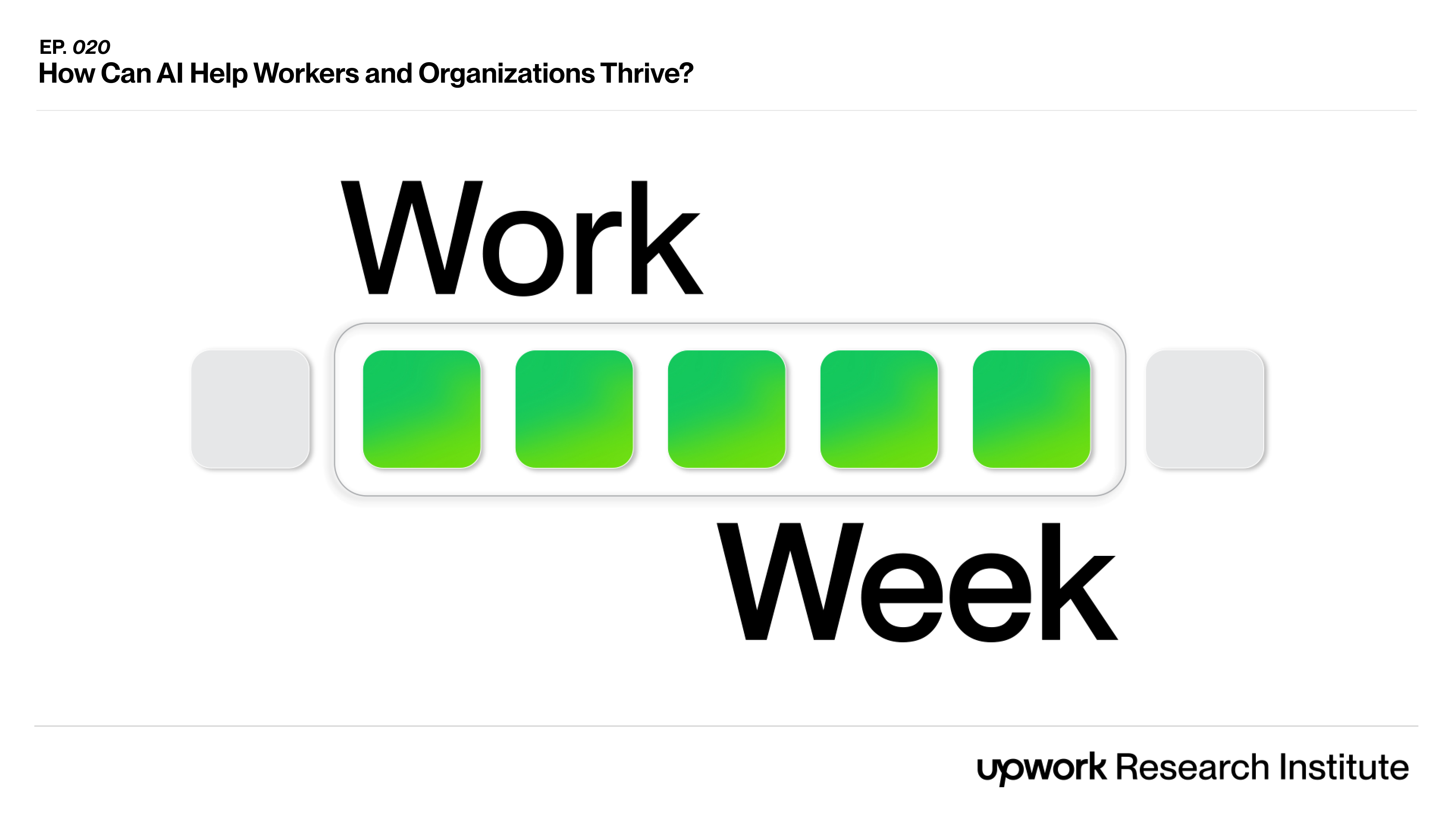


.png)

-p-500.jpg.png)

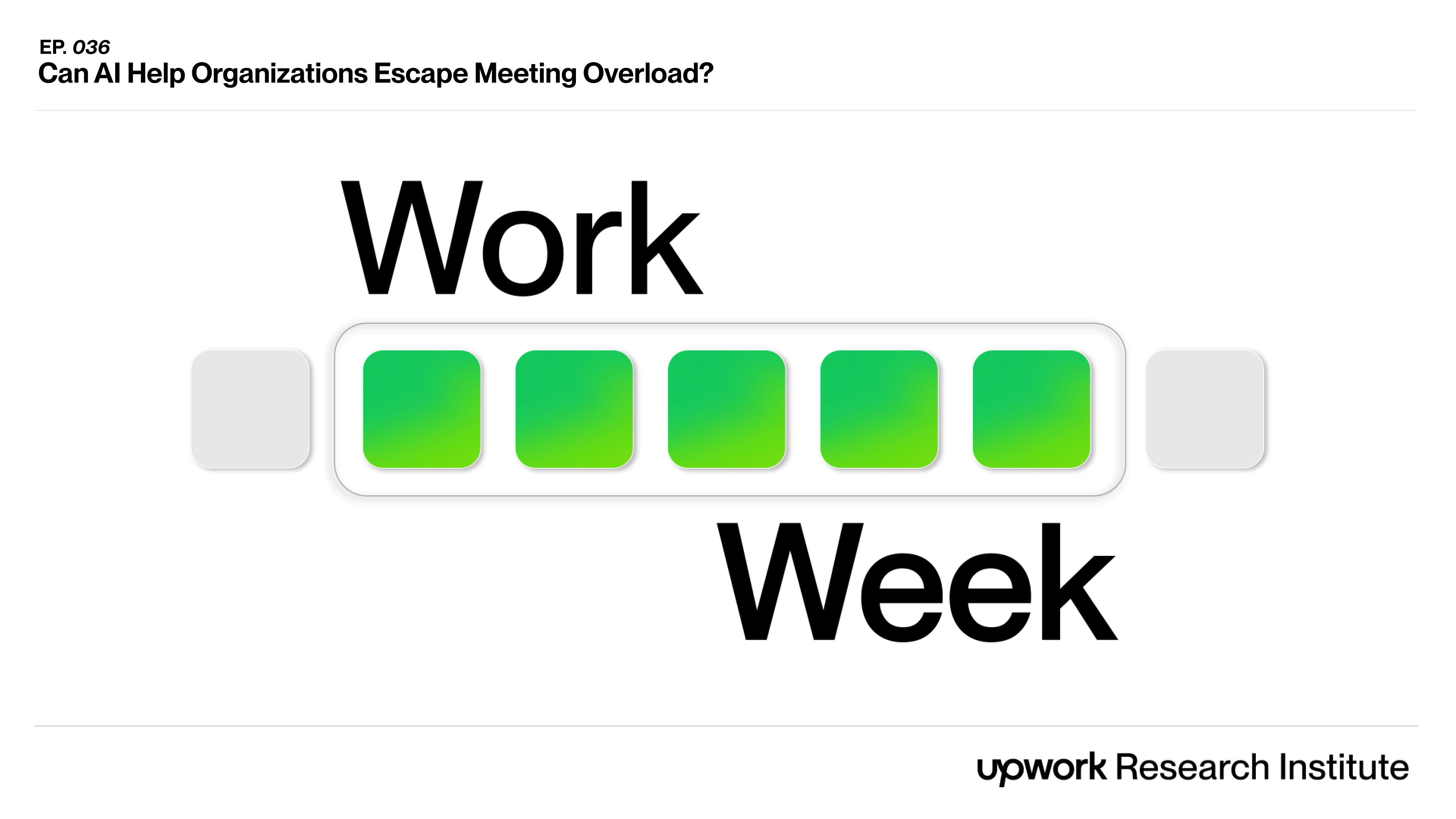

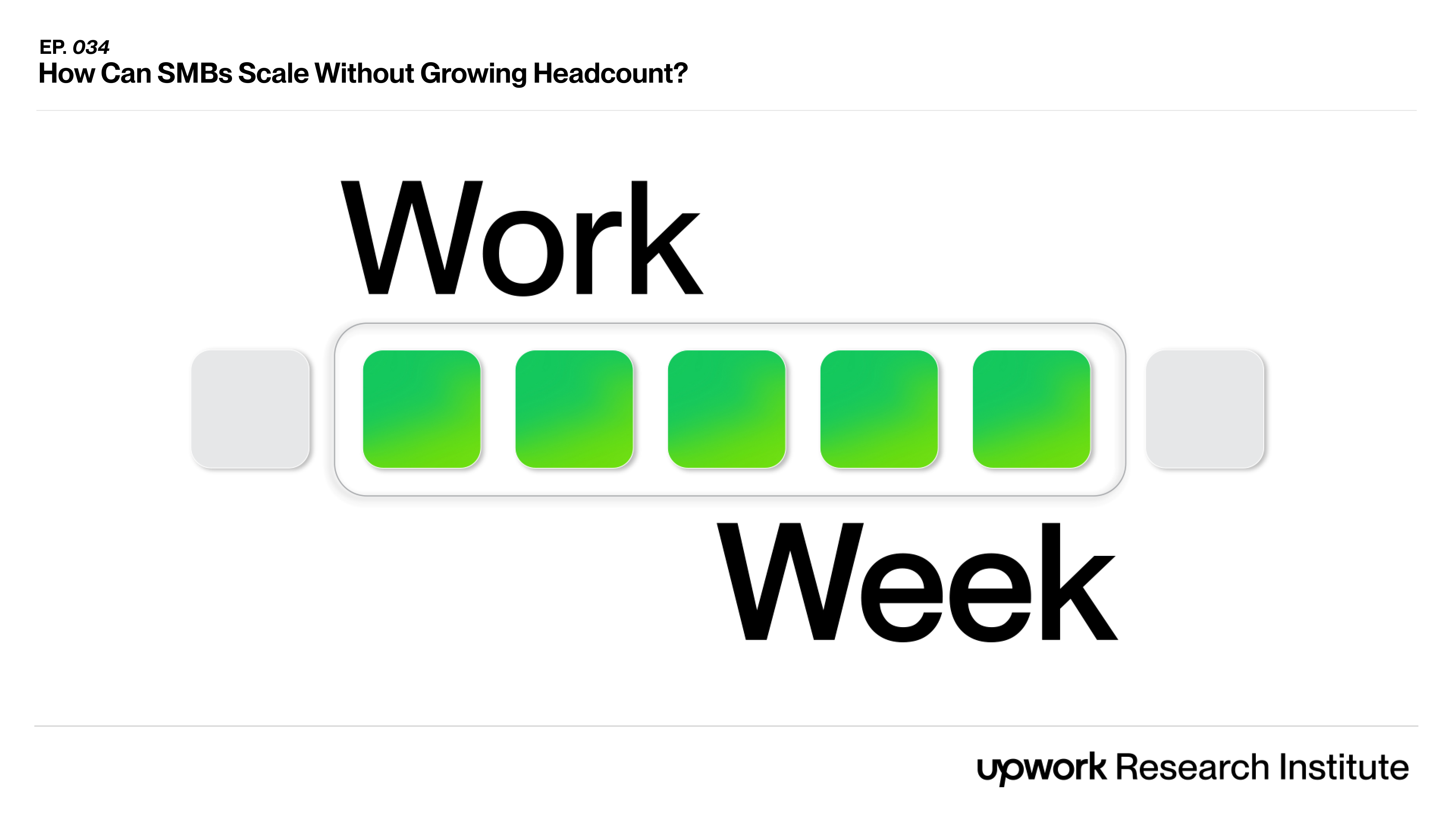
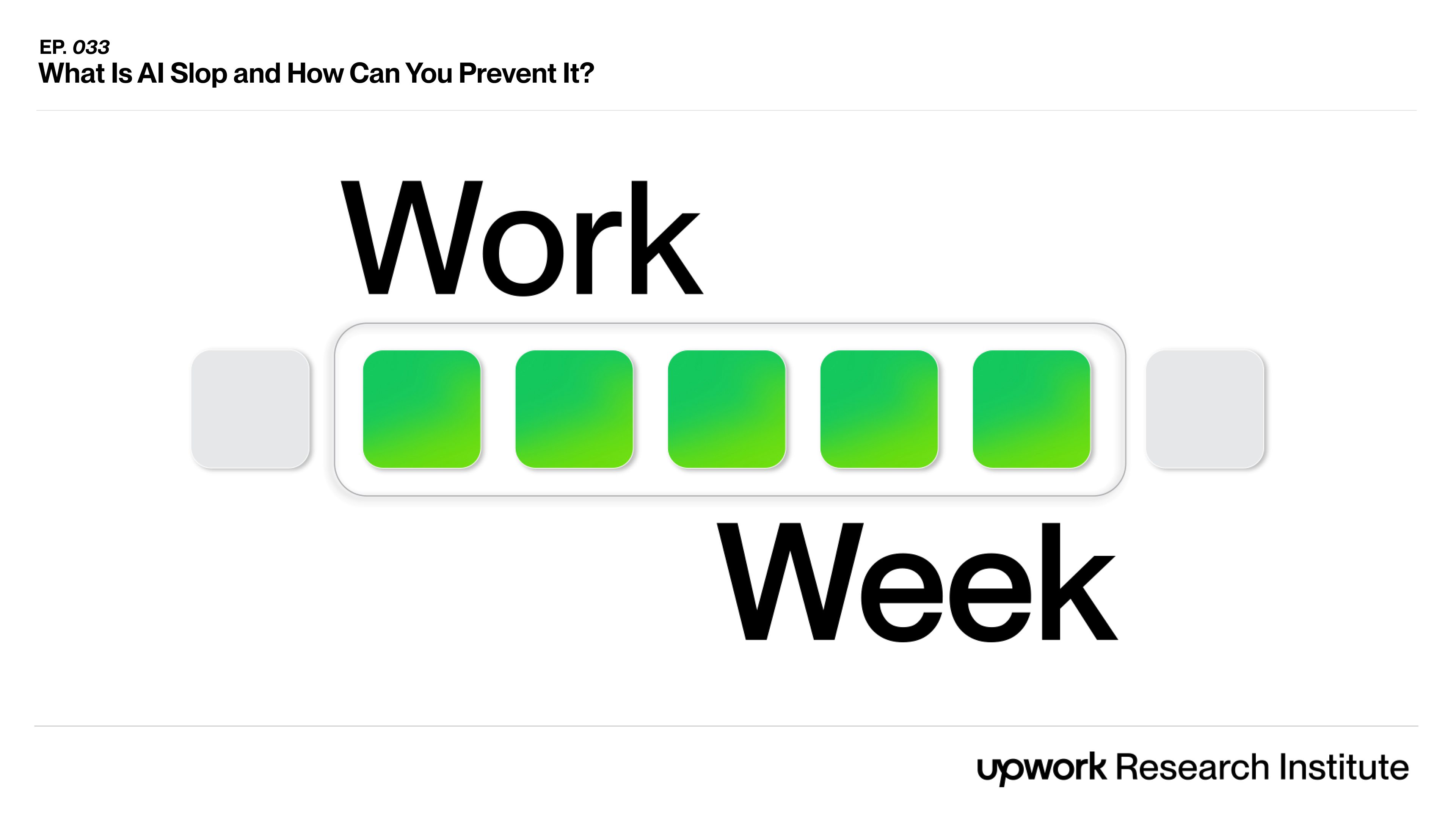
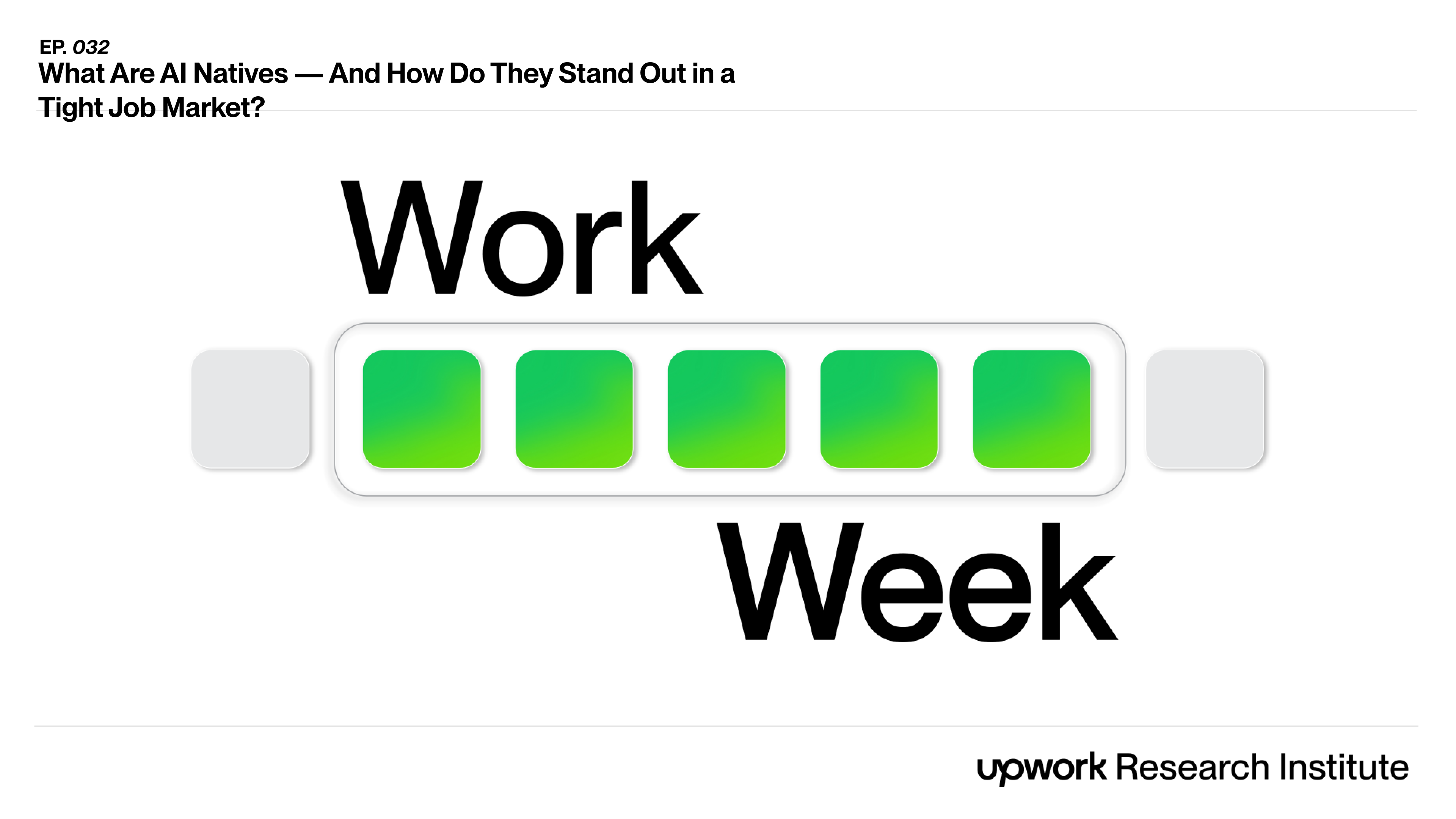
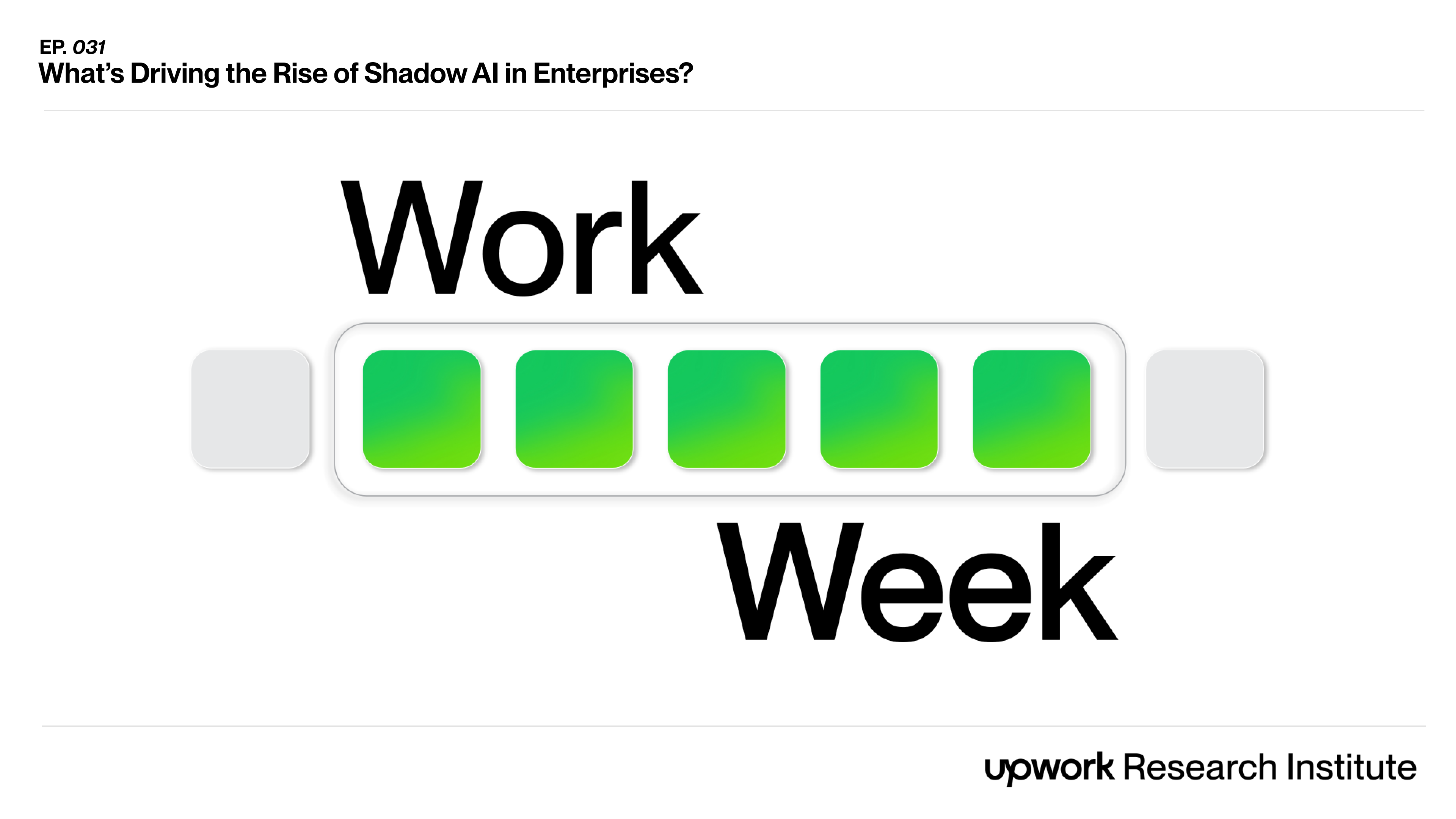
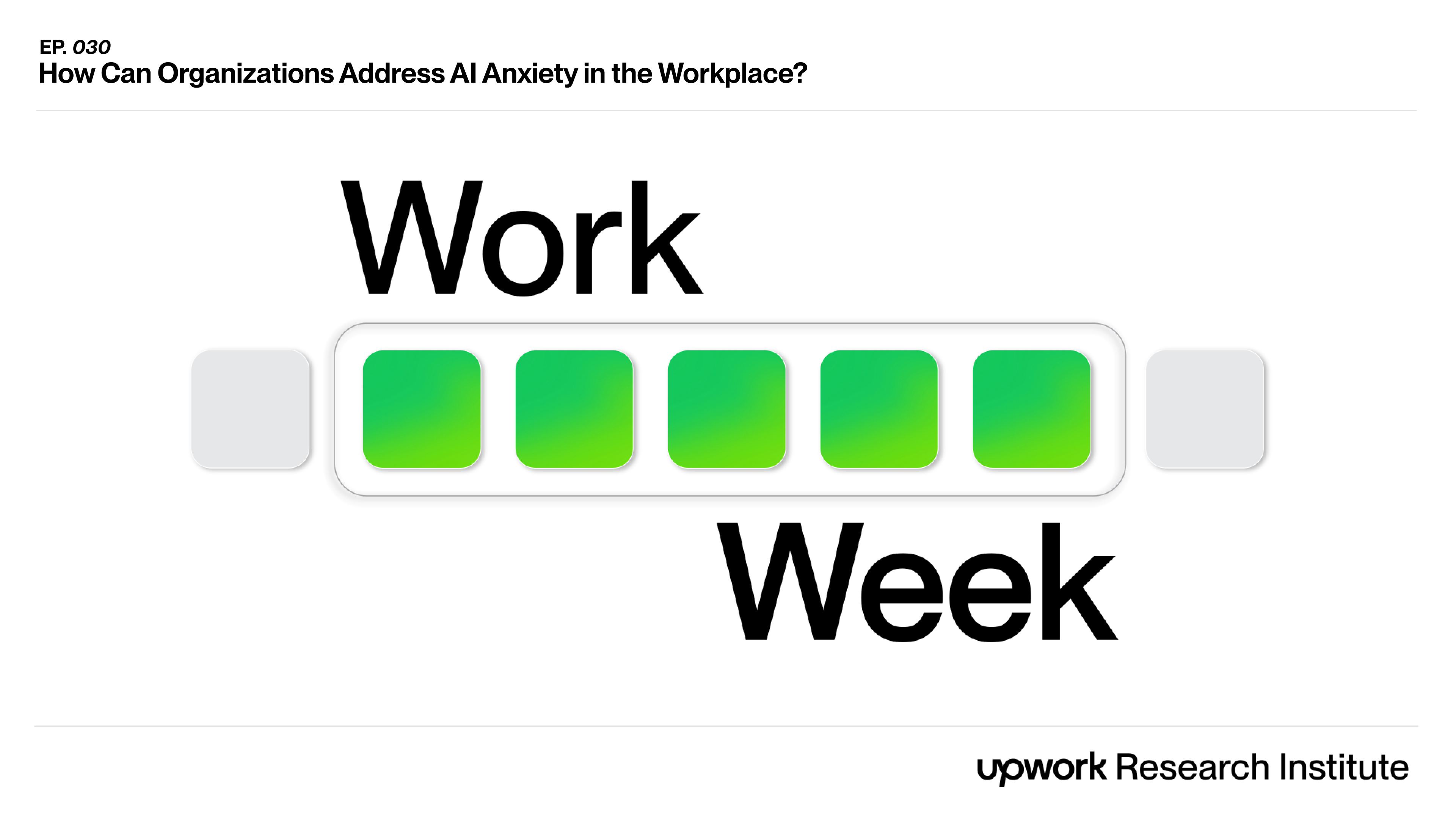
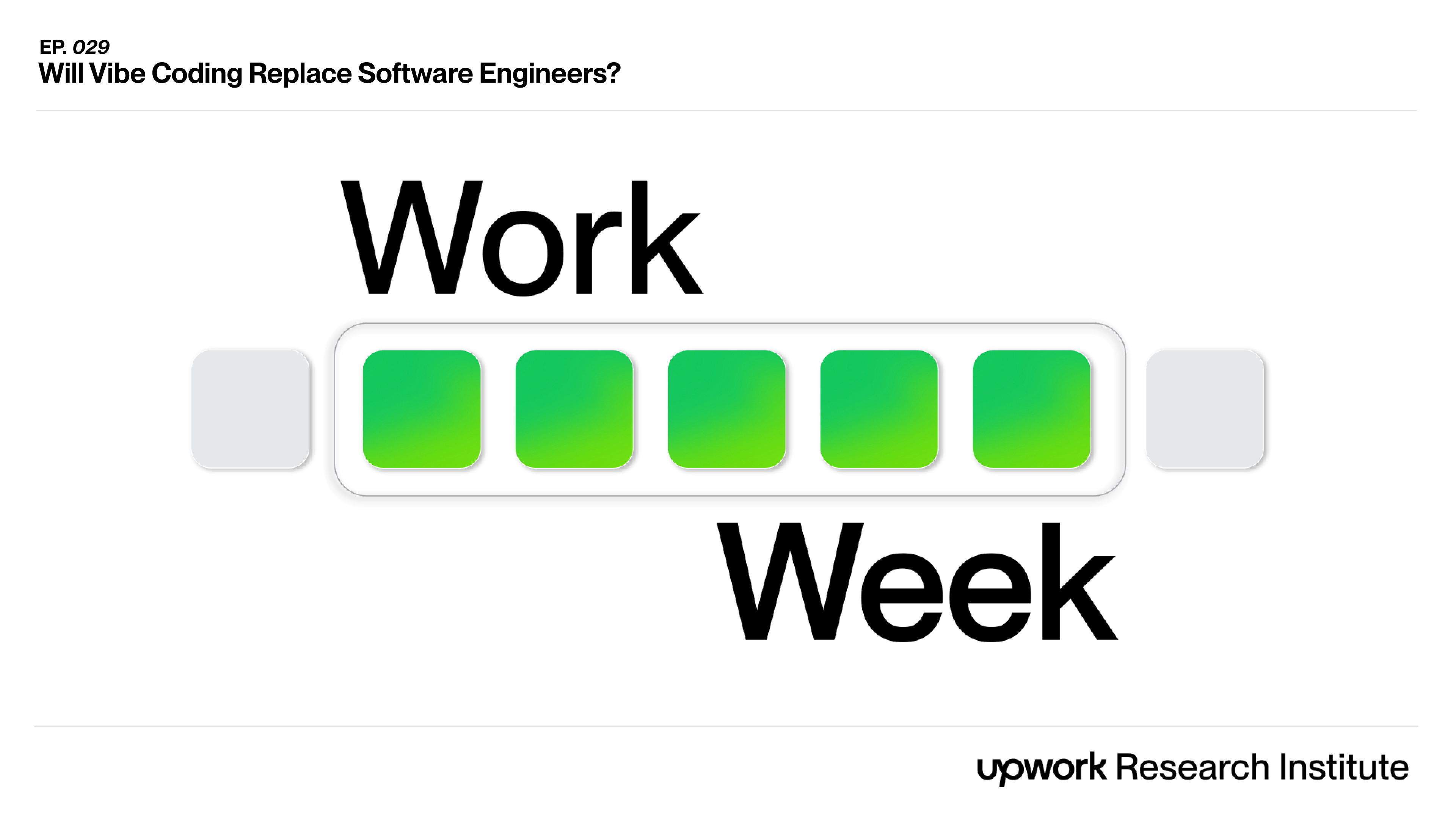
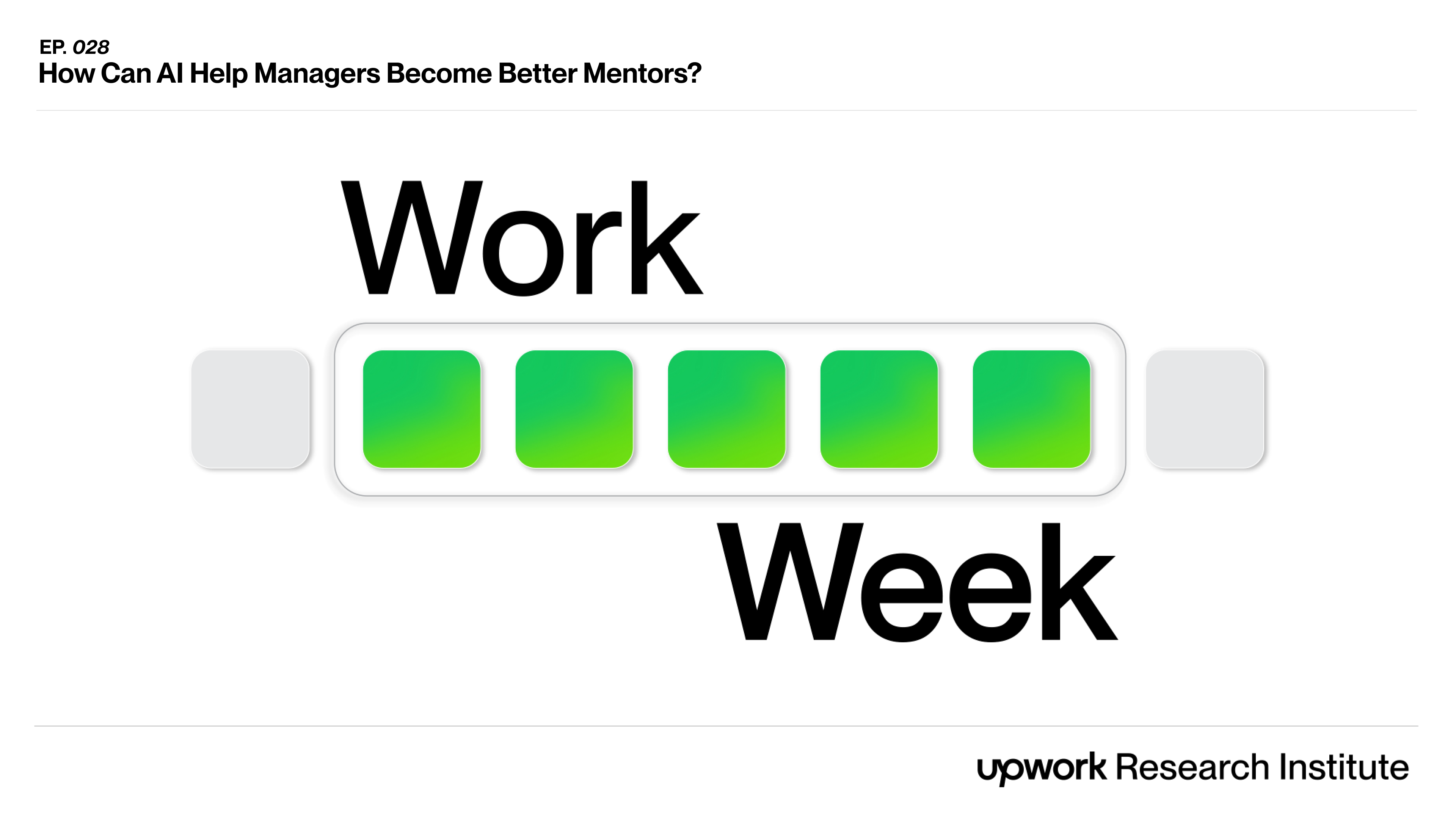

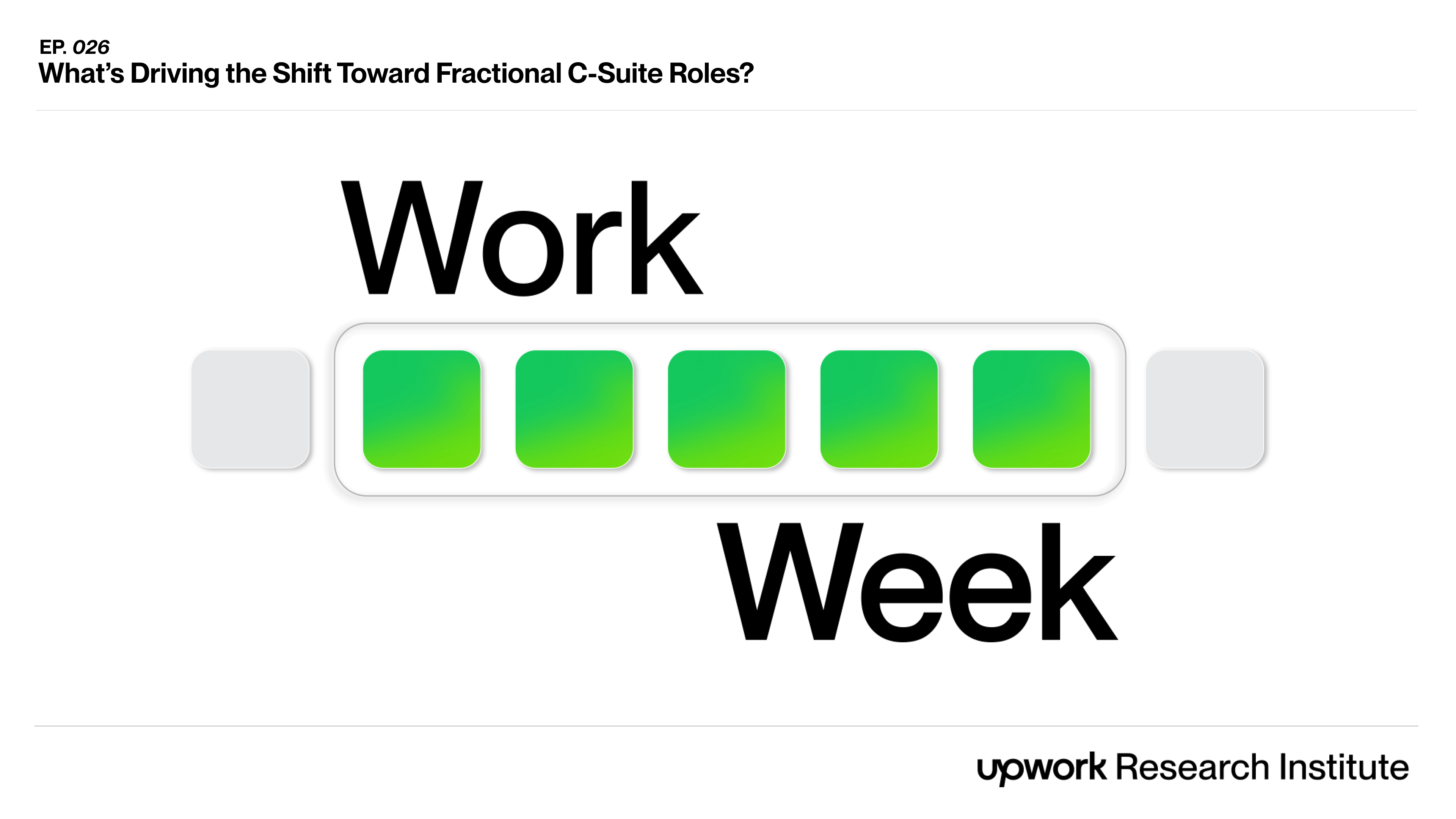
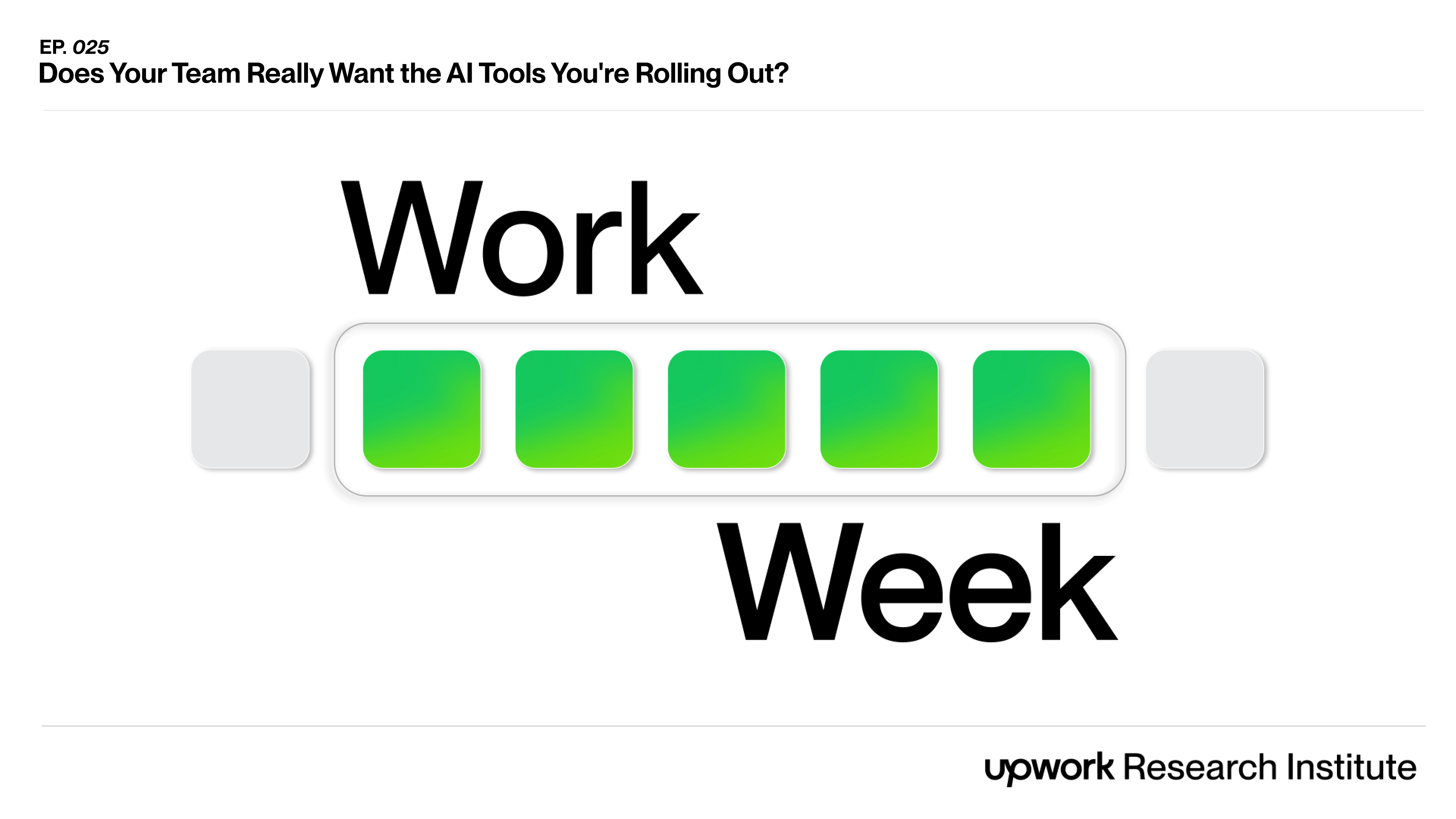
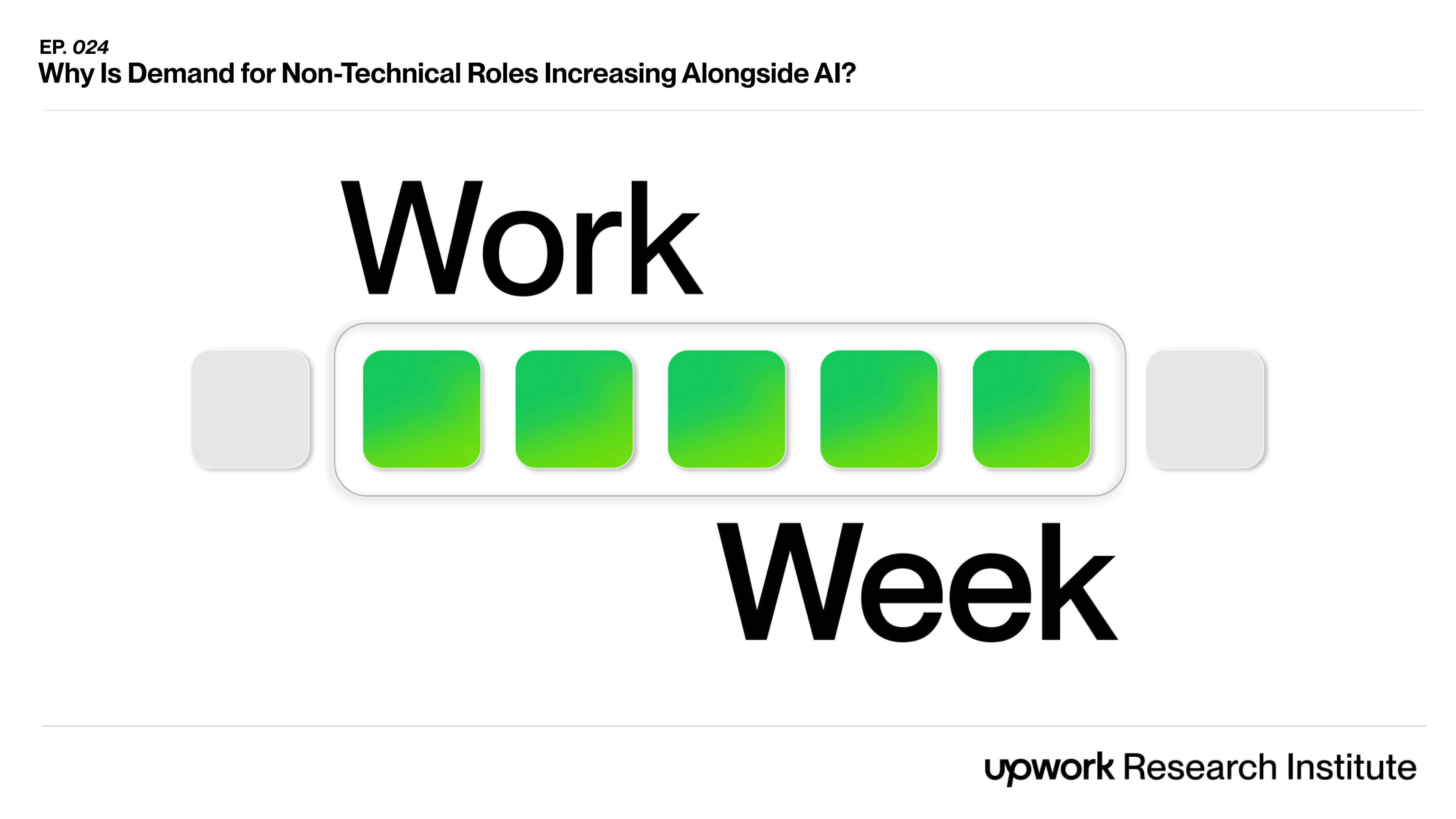
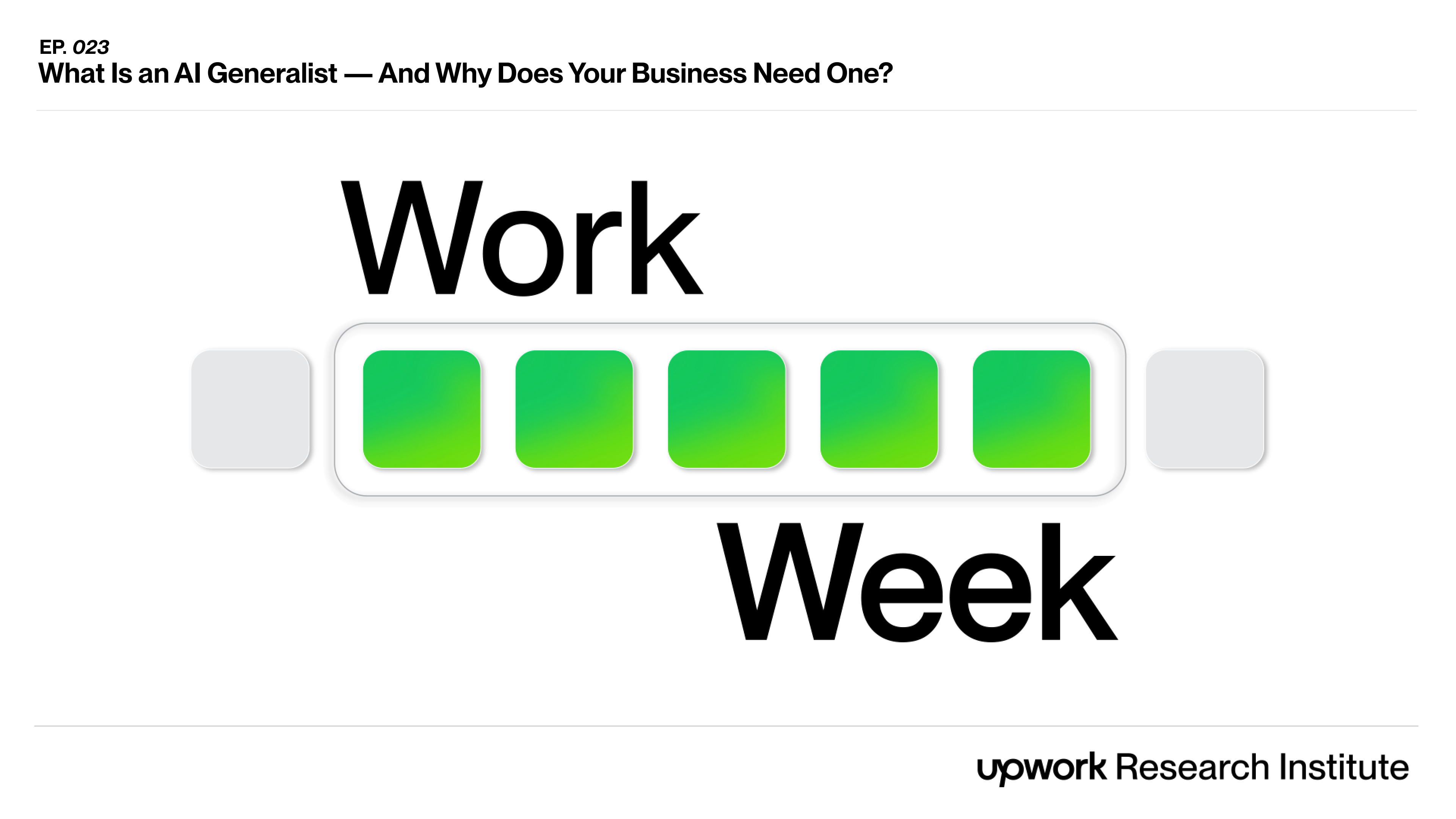
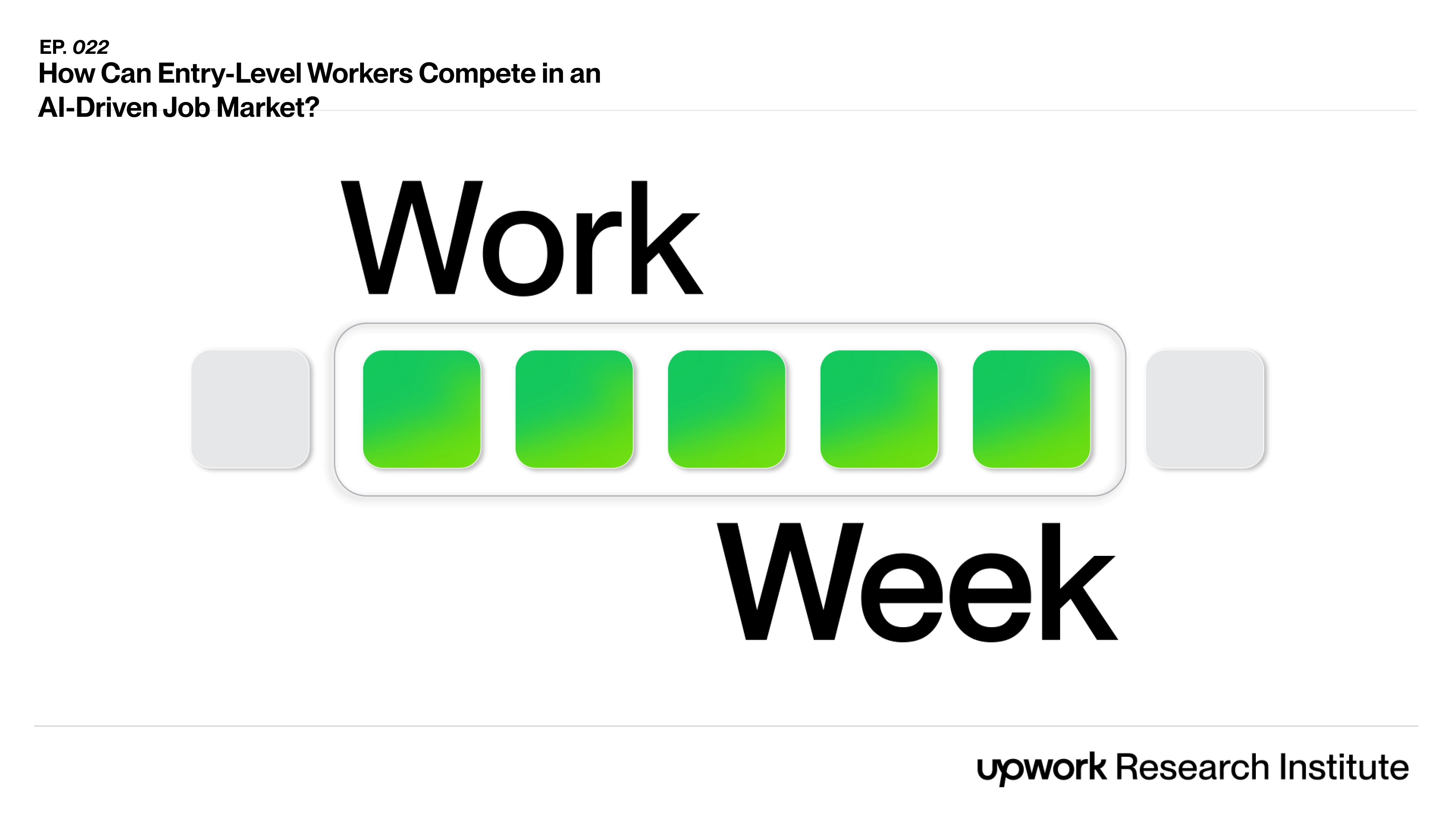

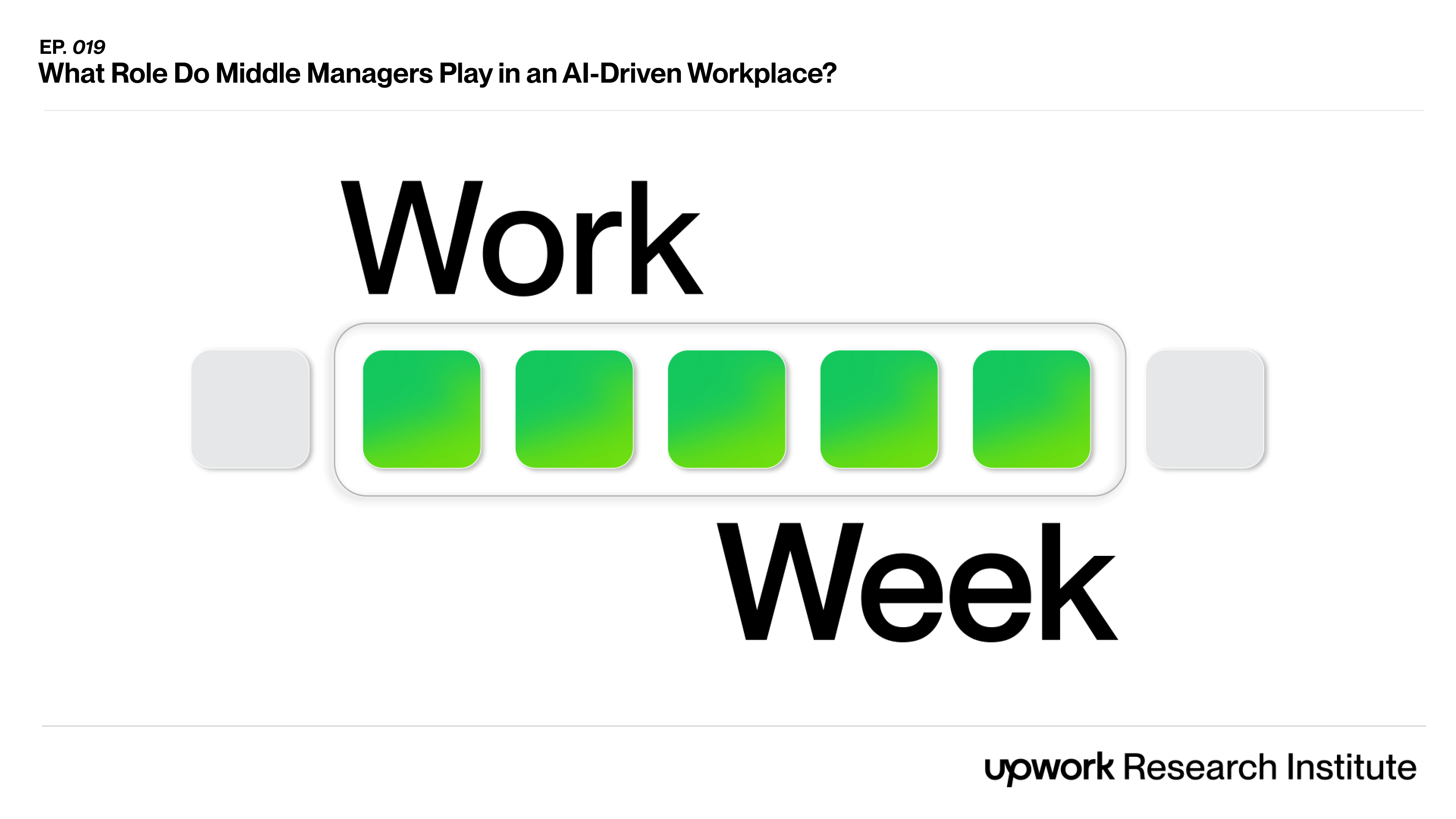
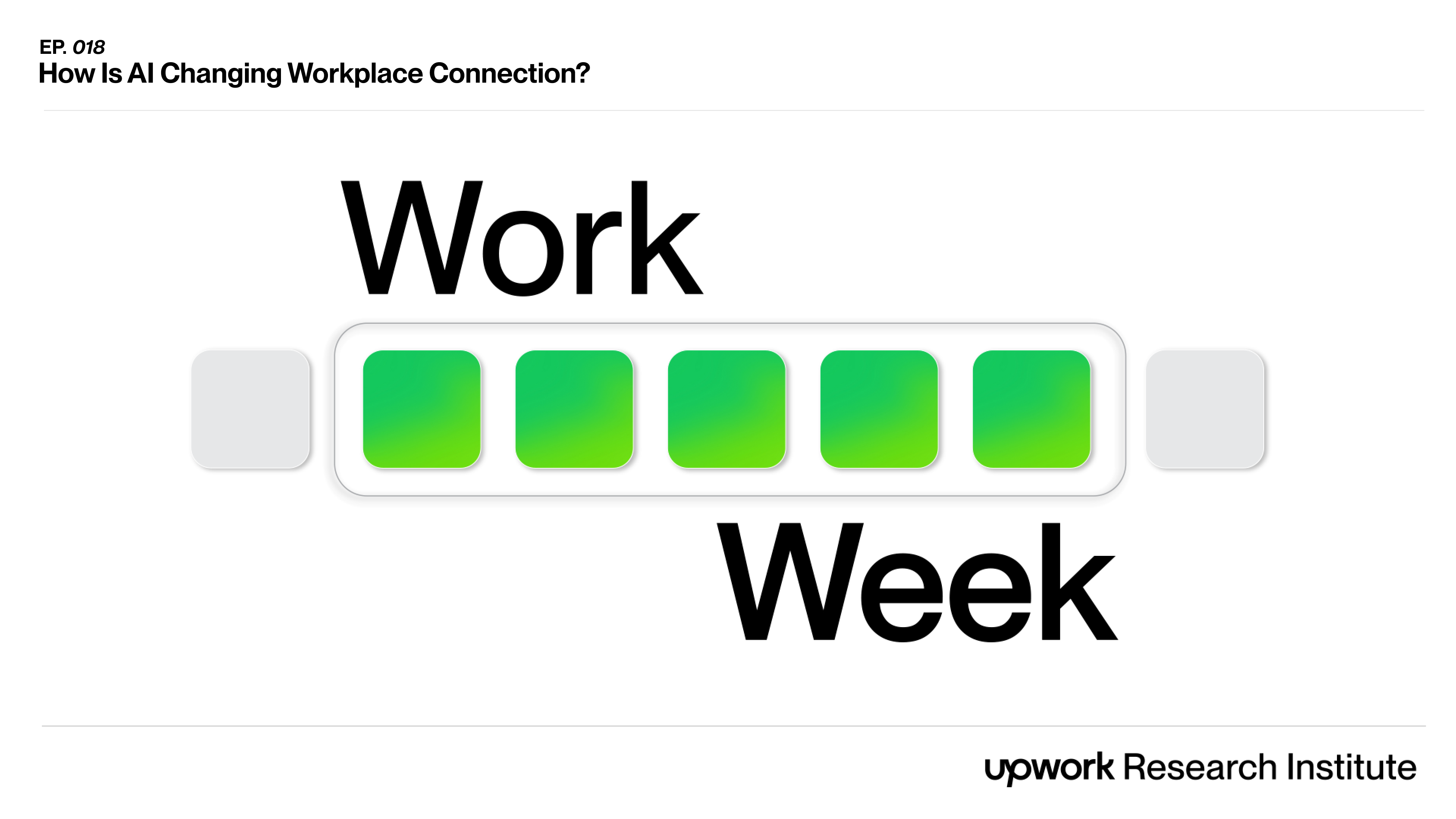

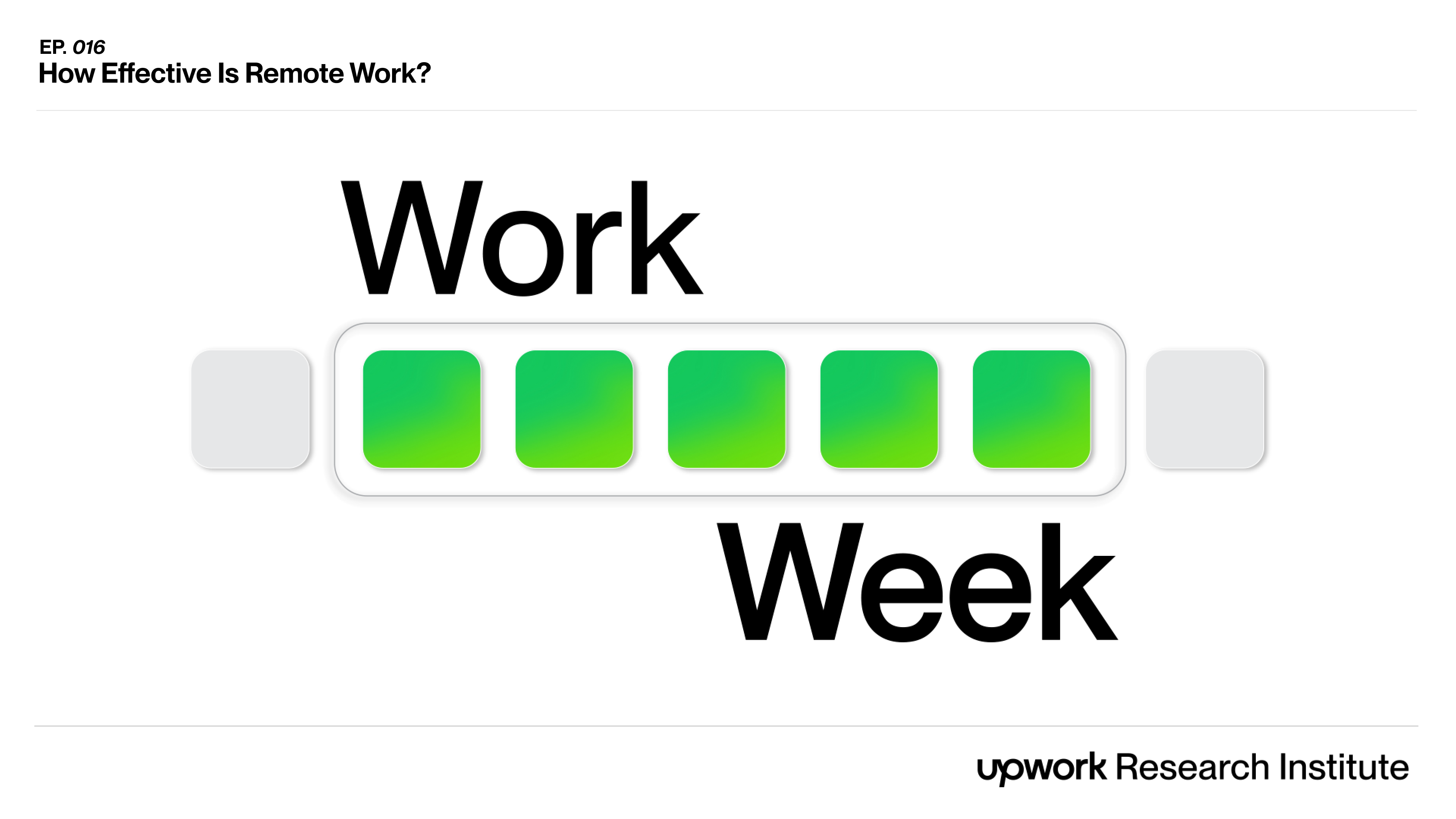
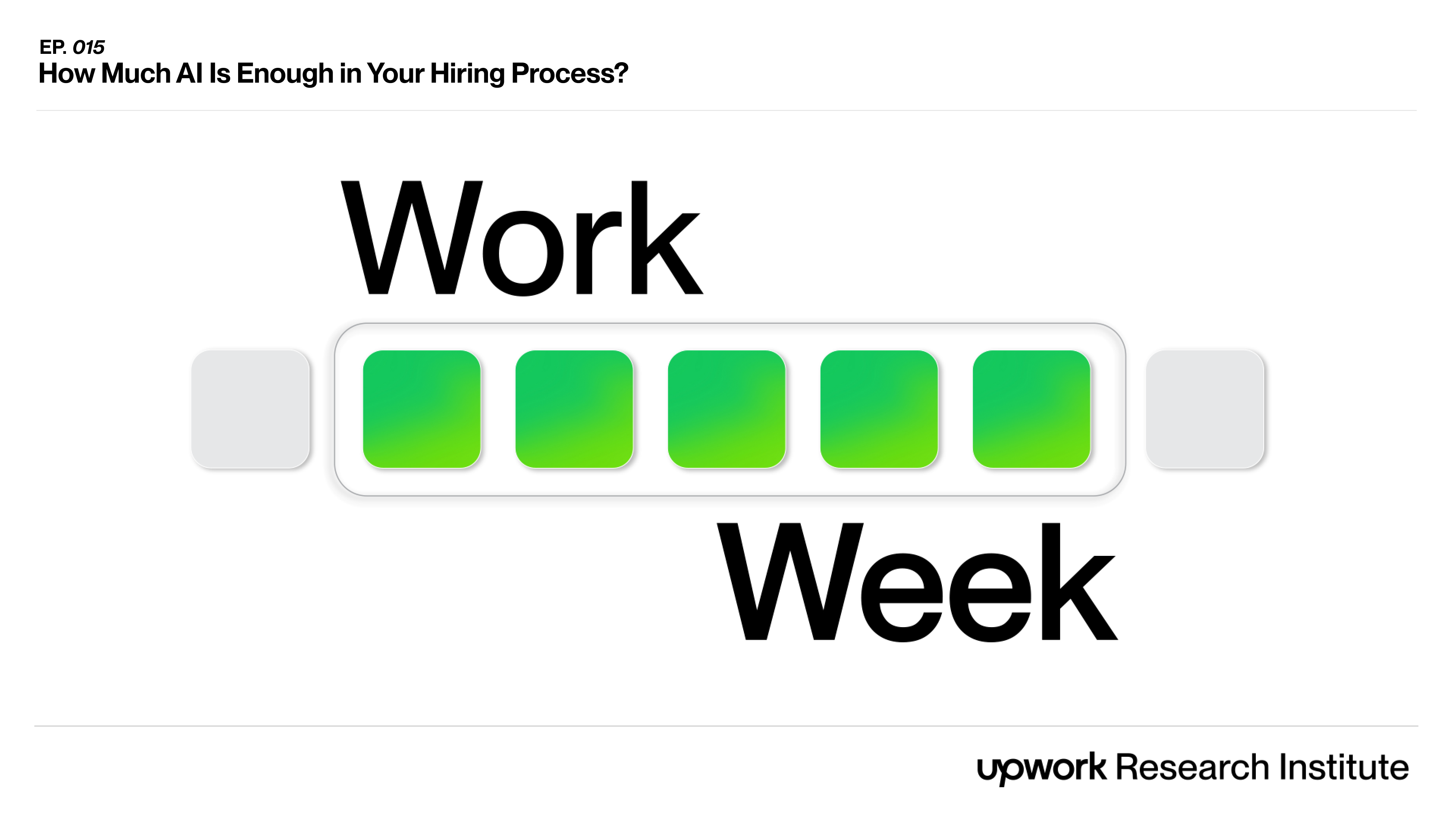

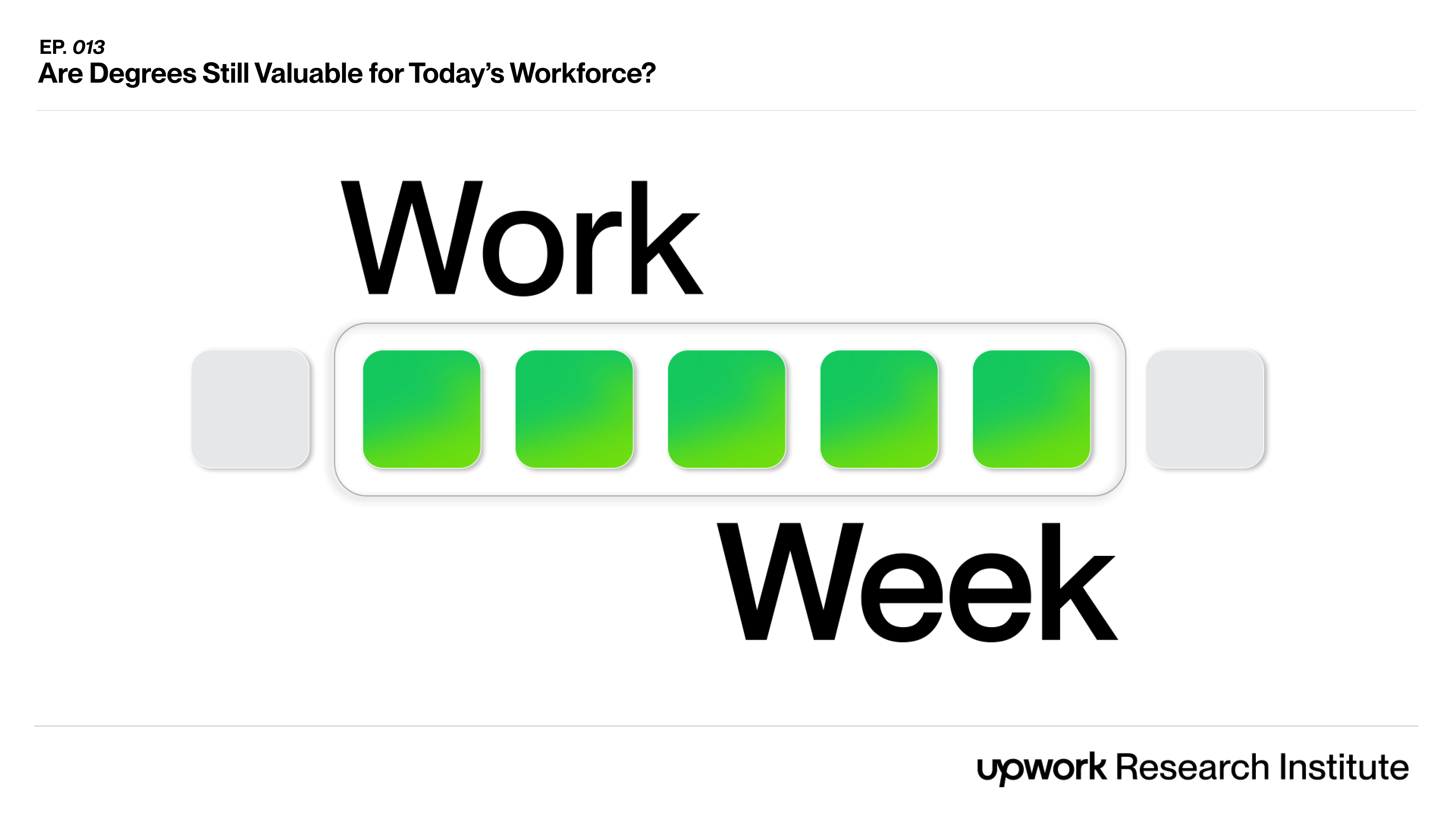
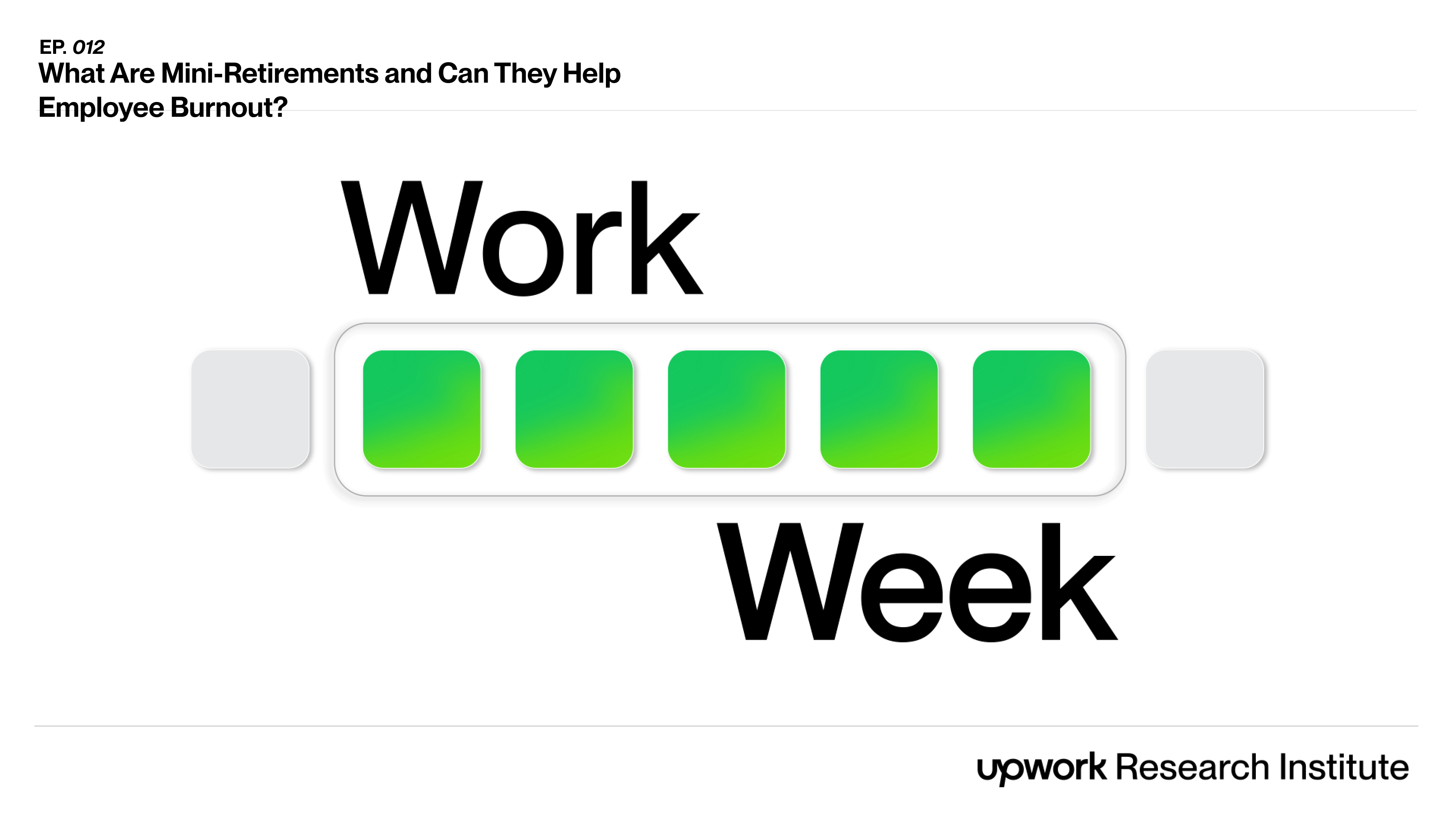
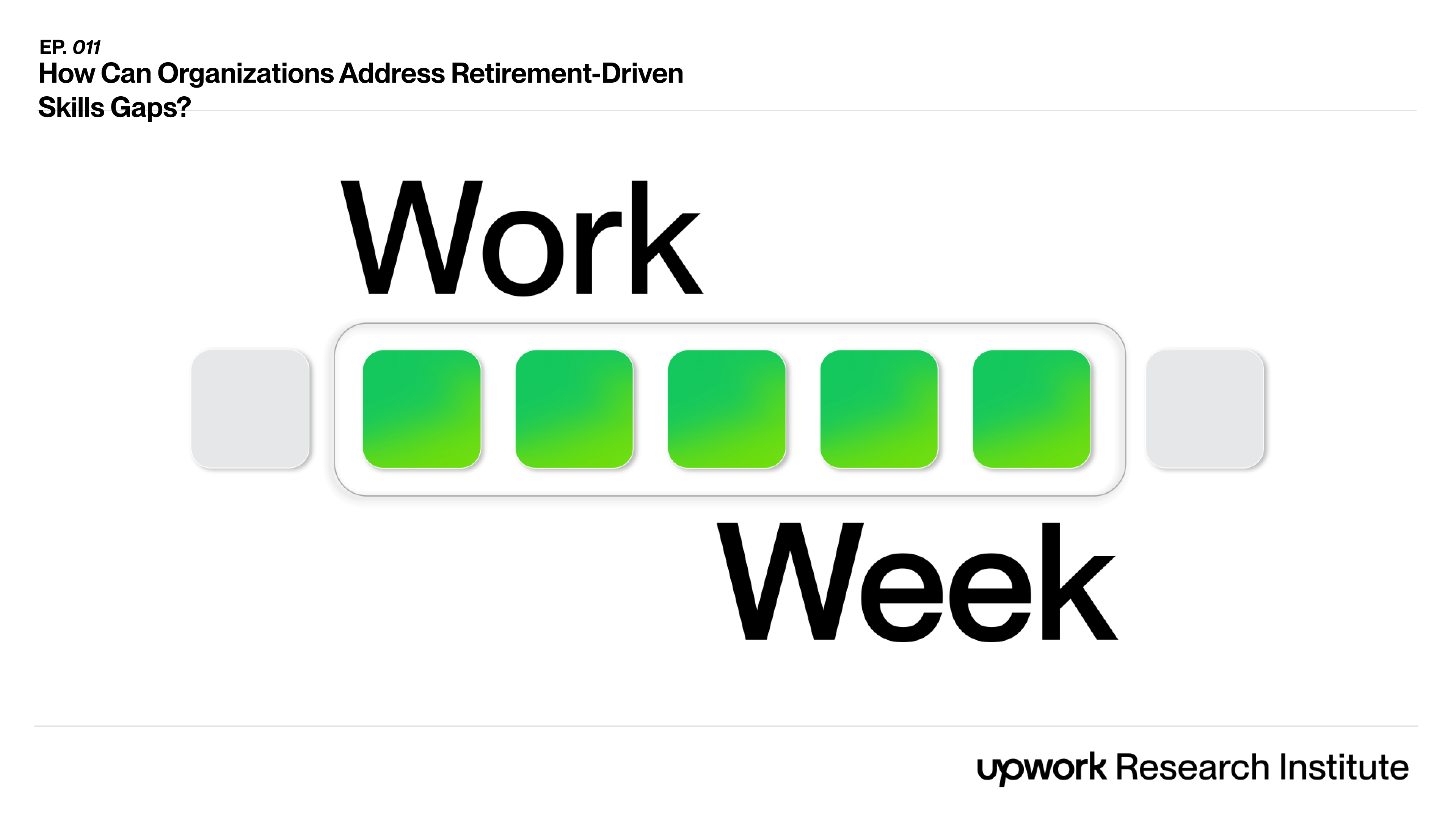
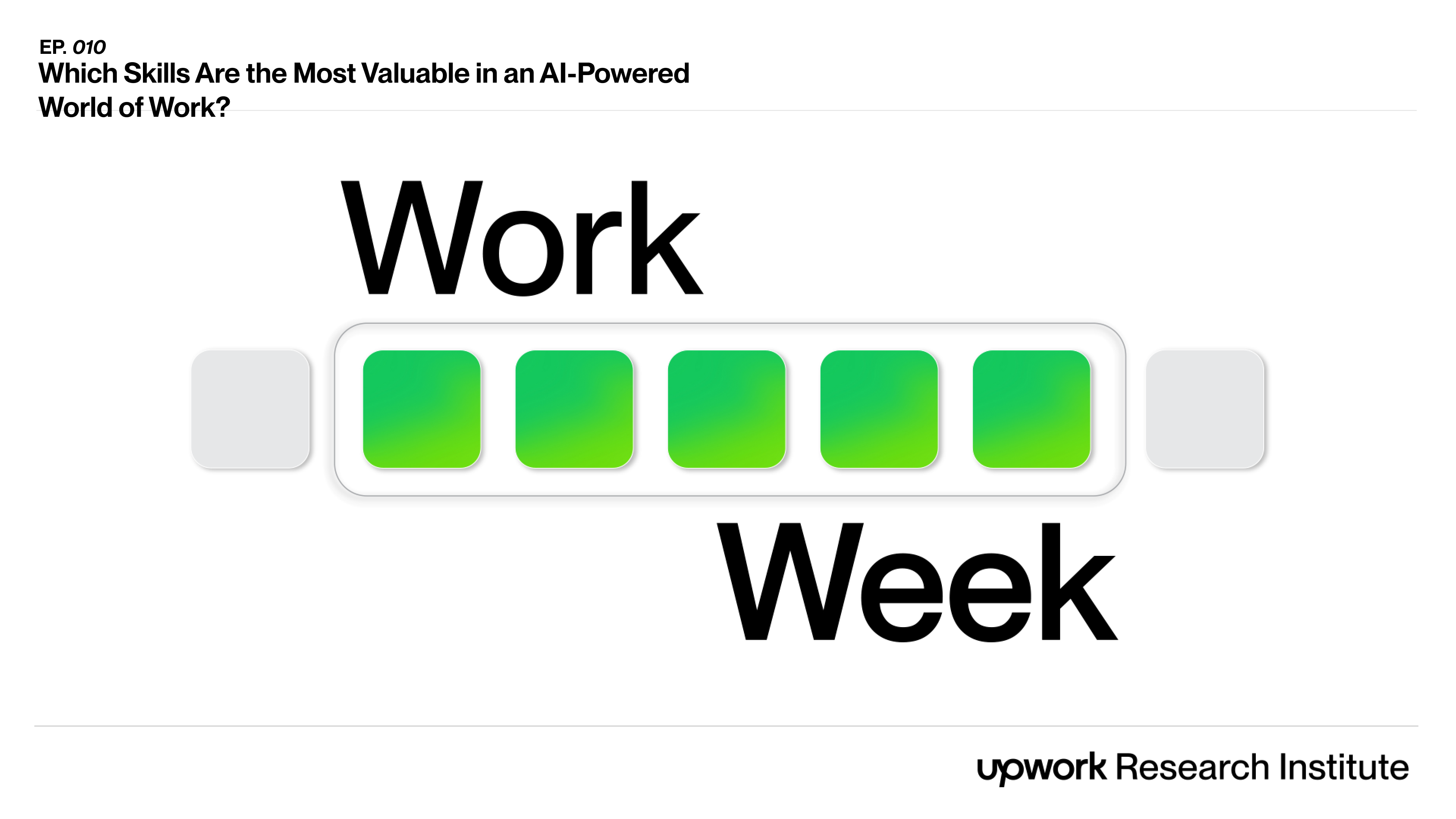
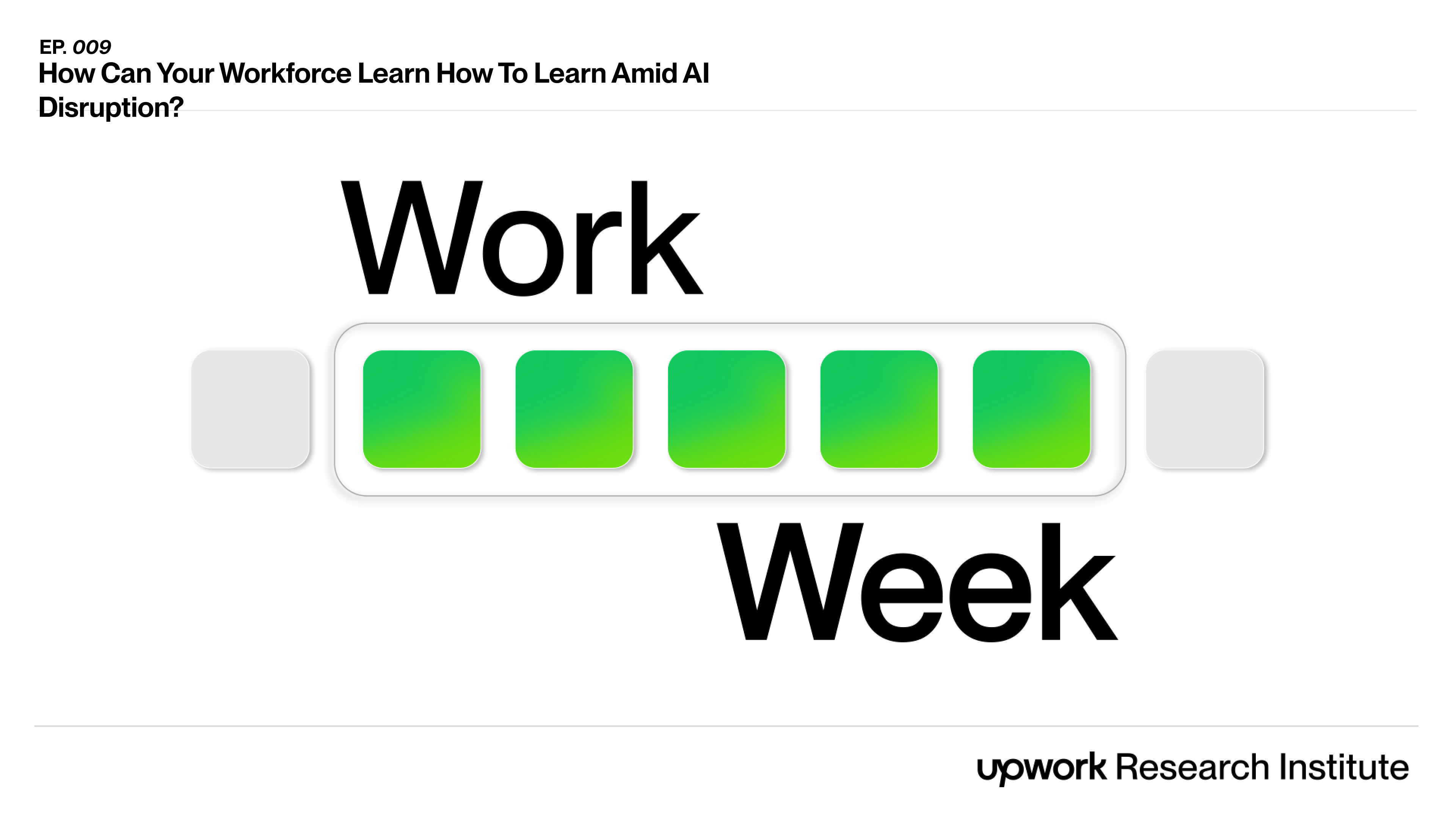
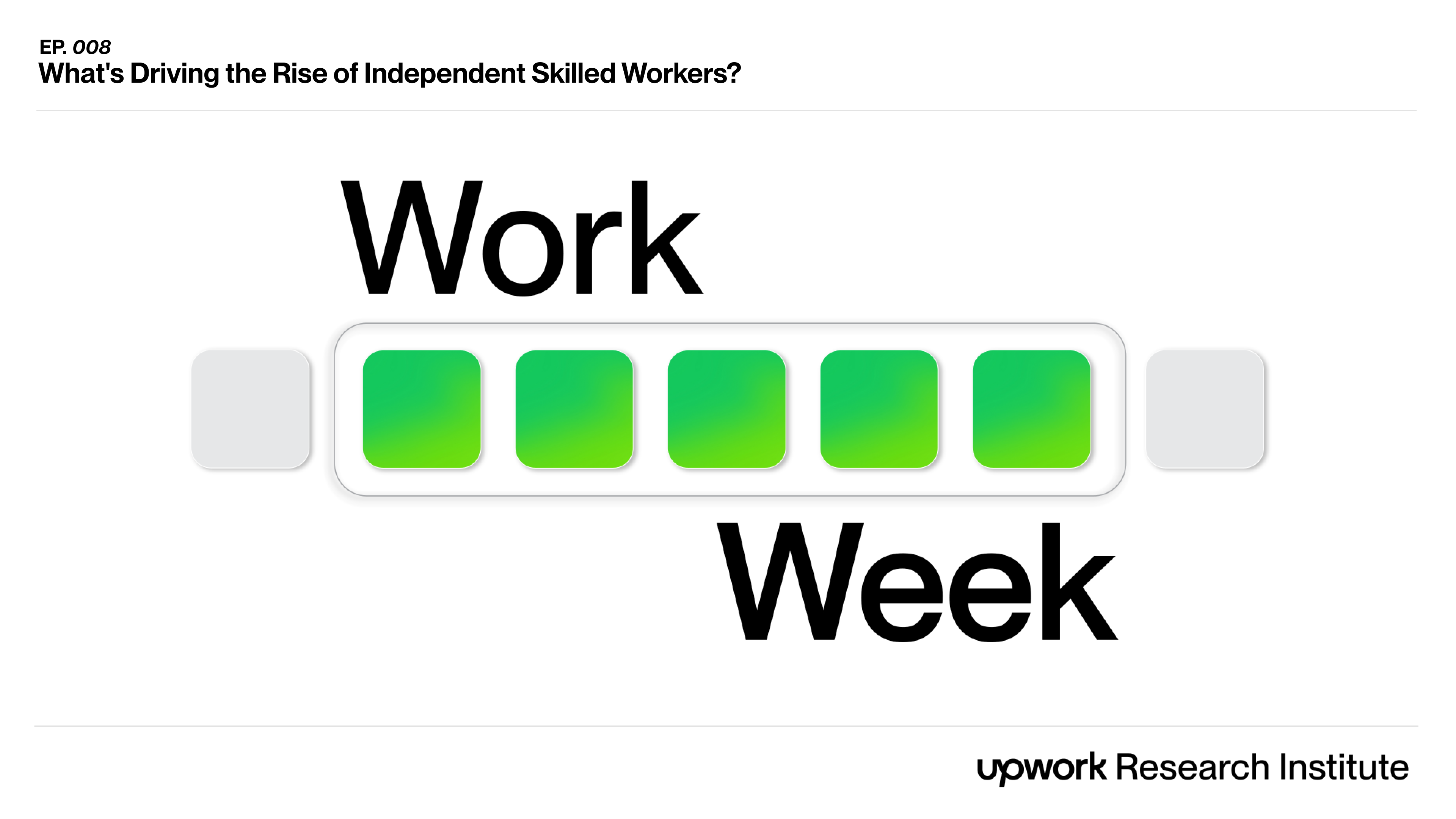
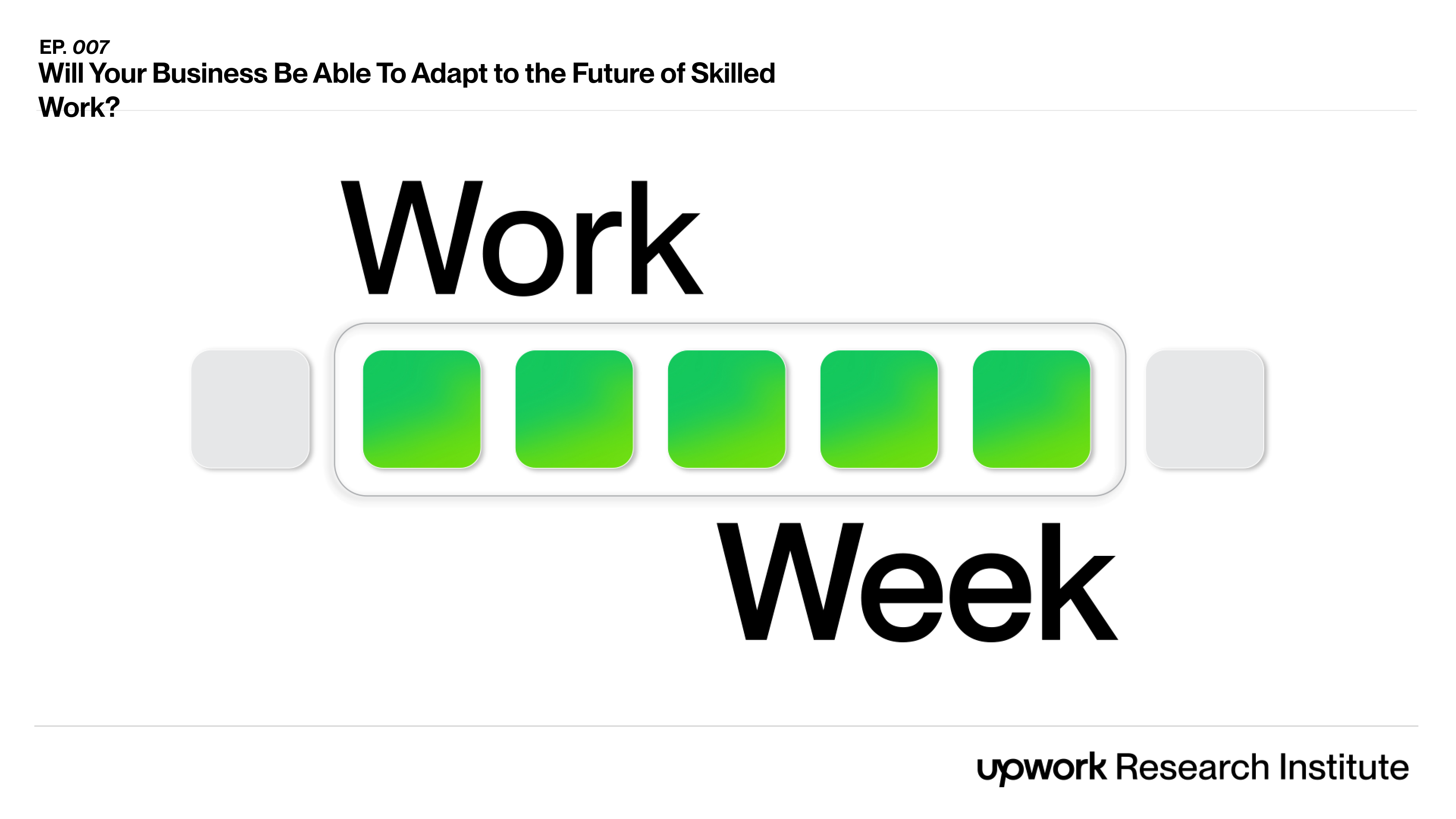
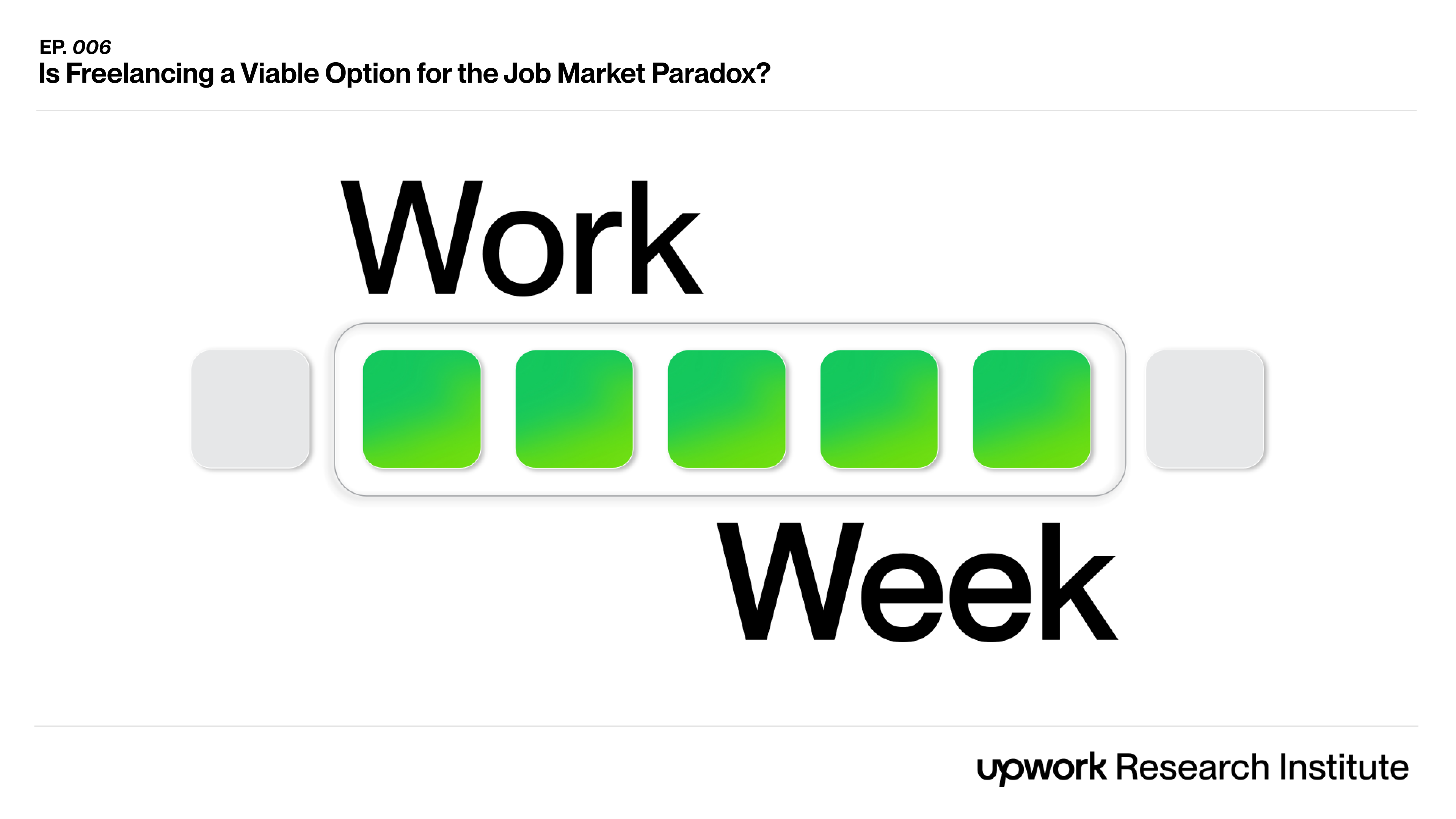
.png)
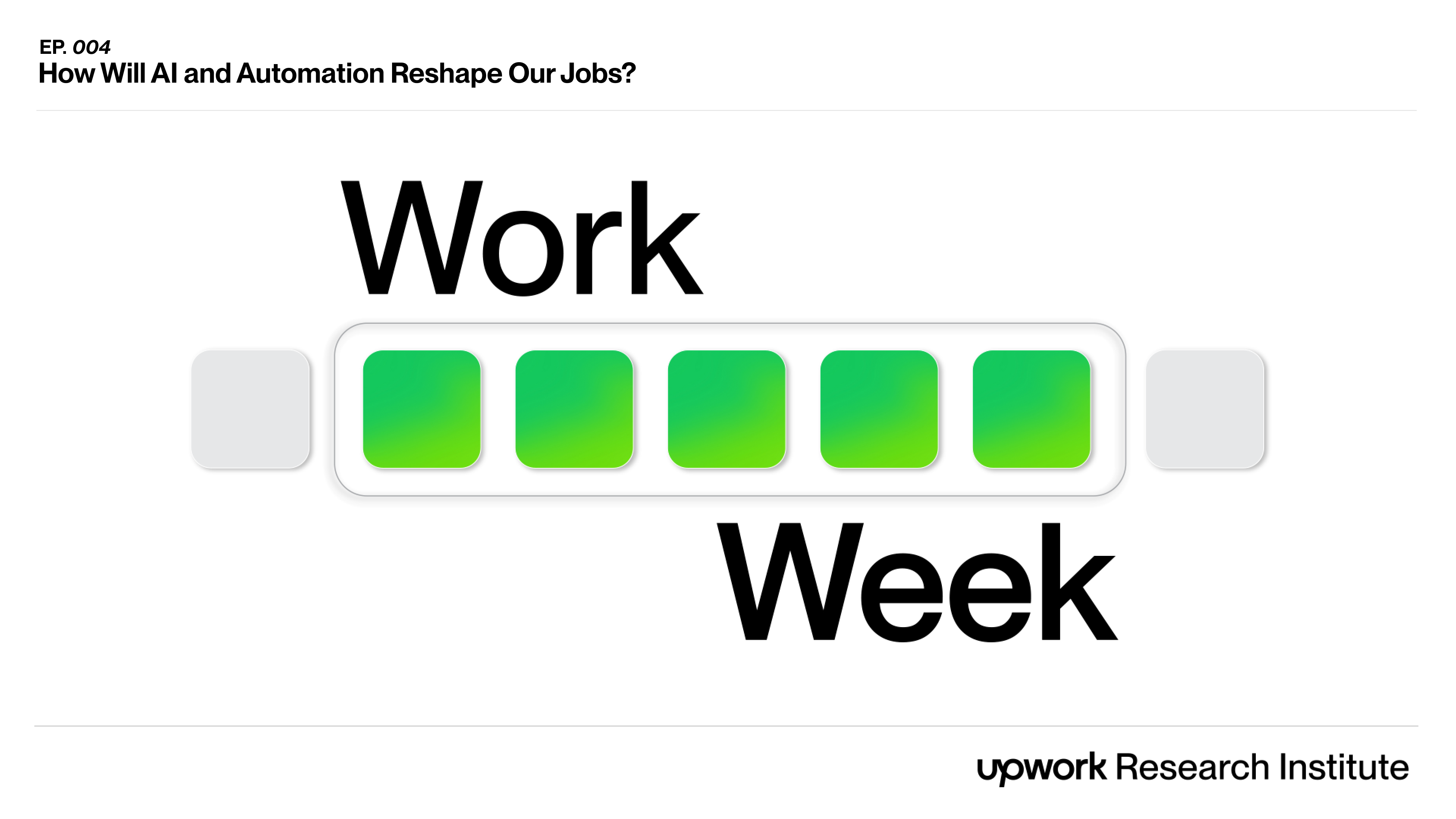

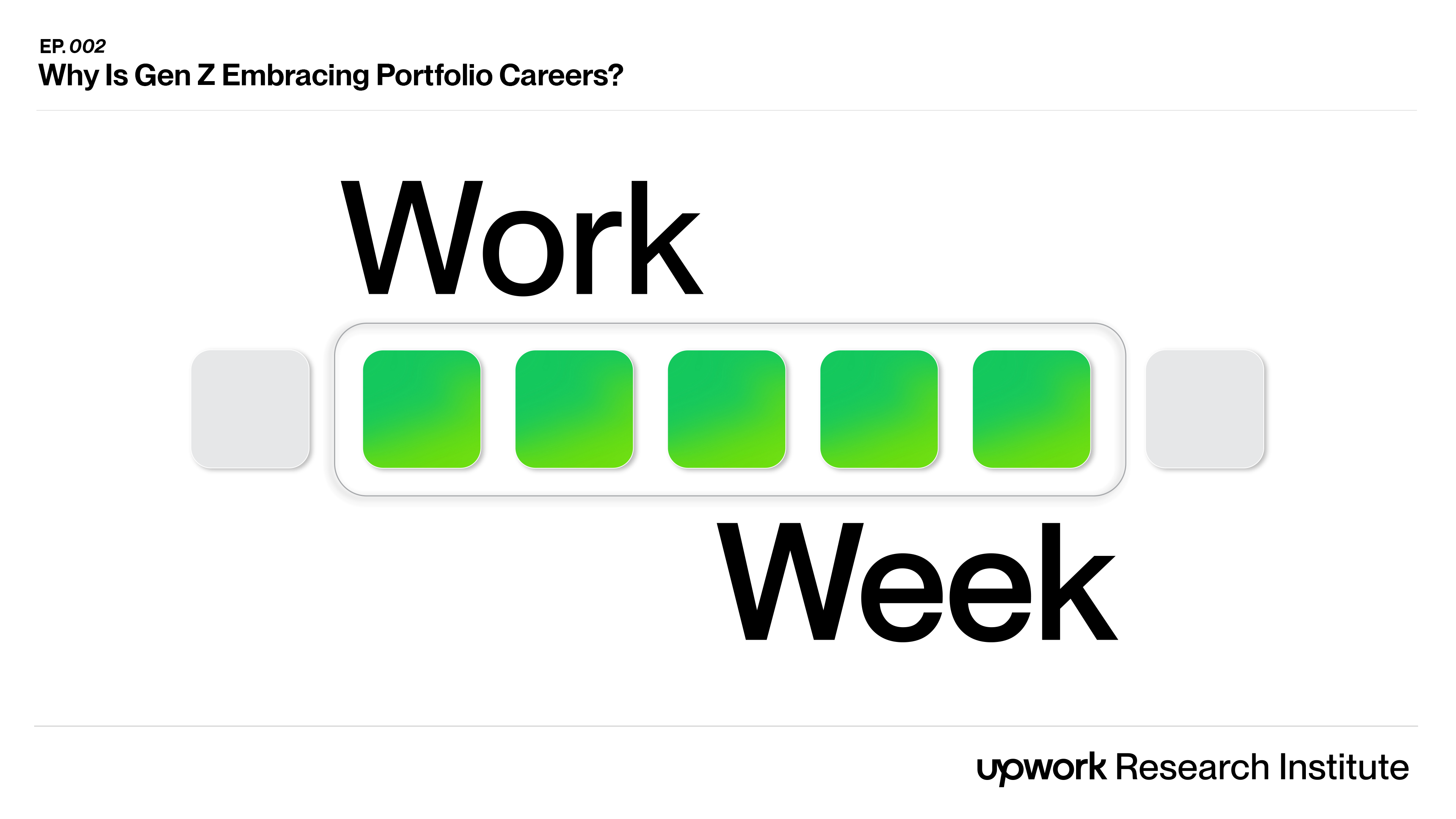
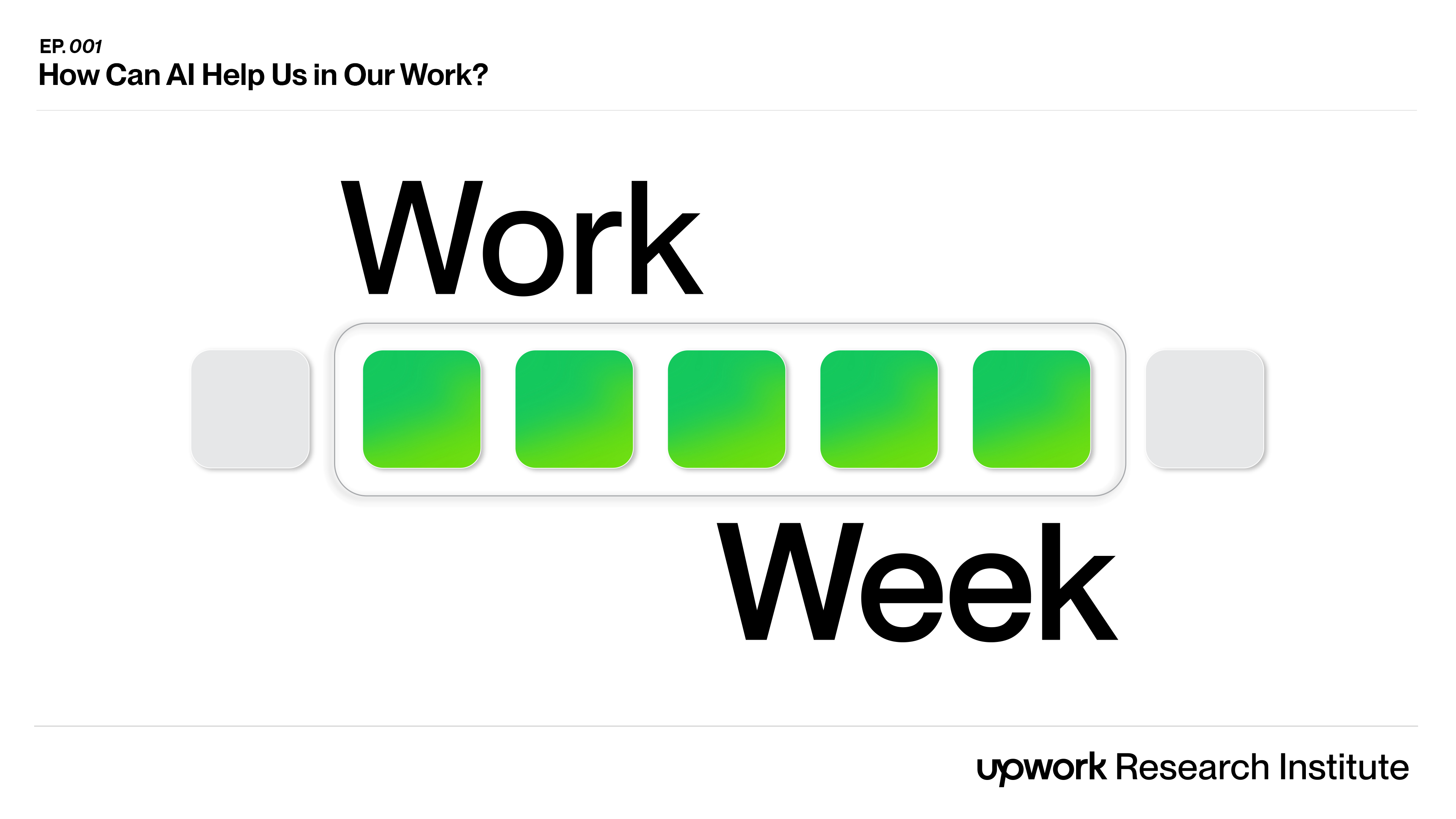
.jpg)